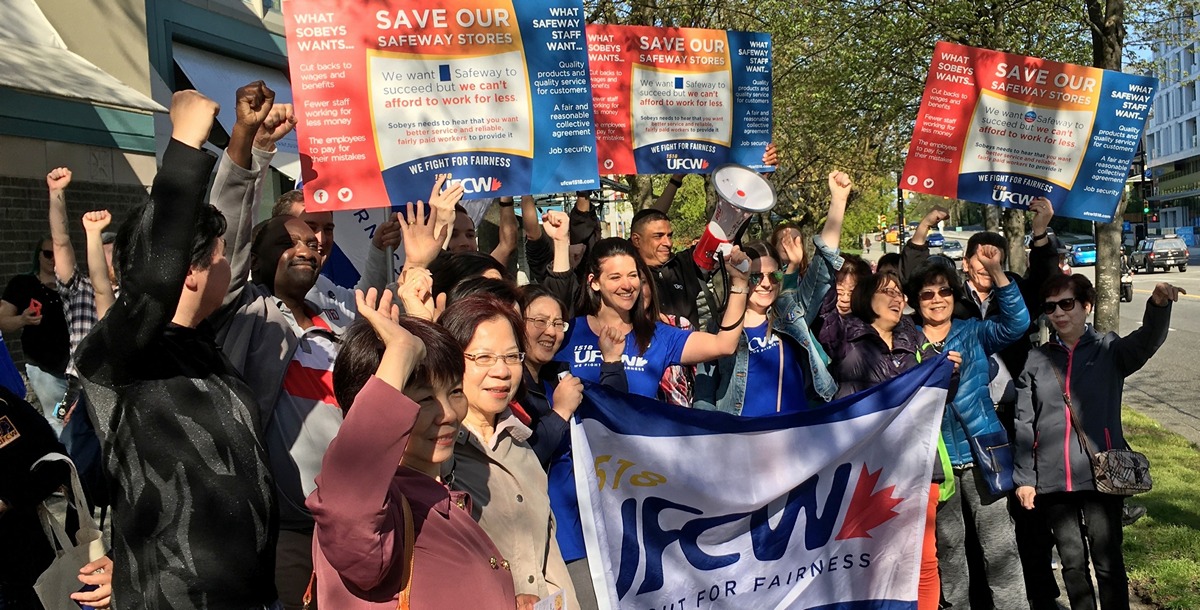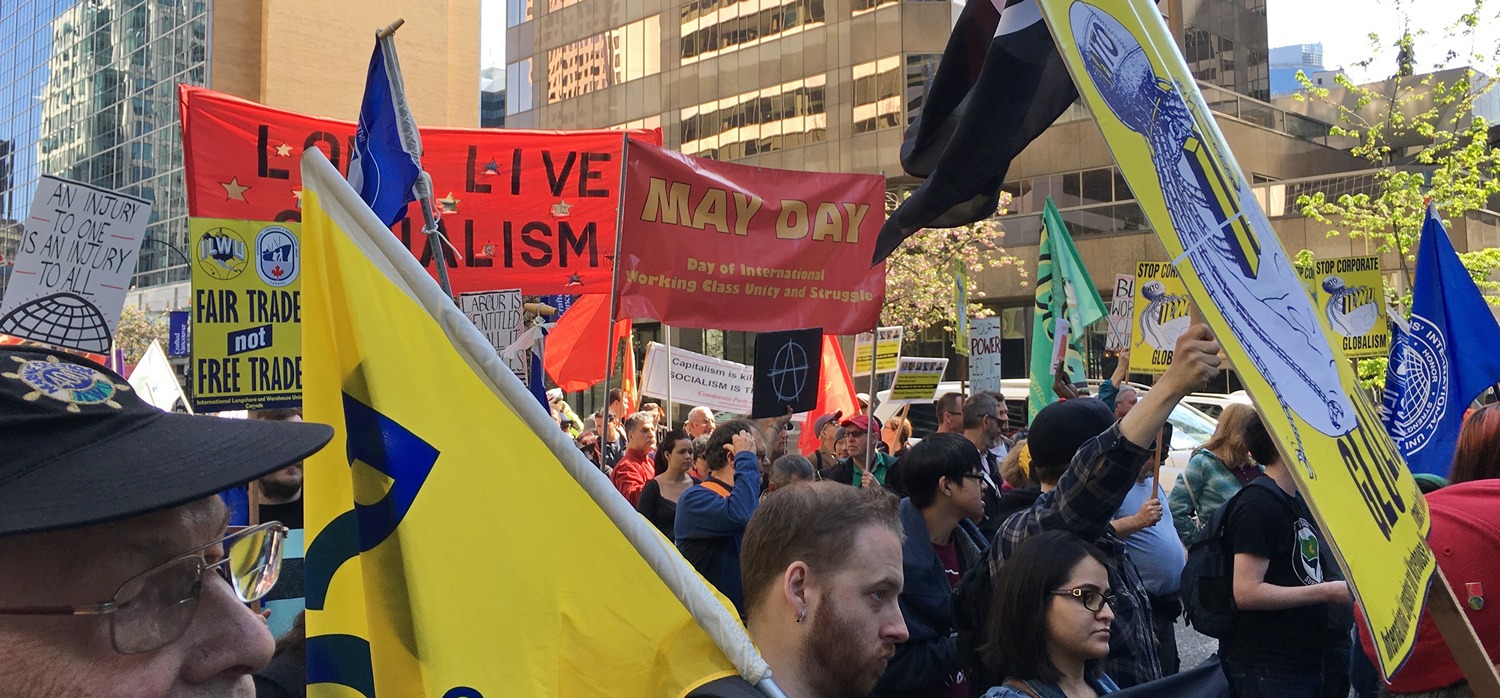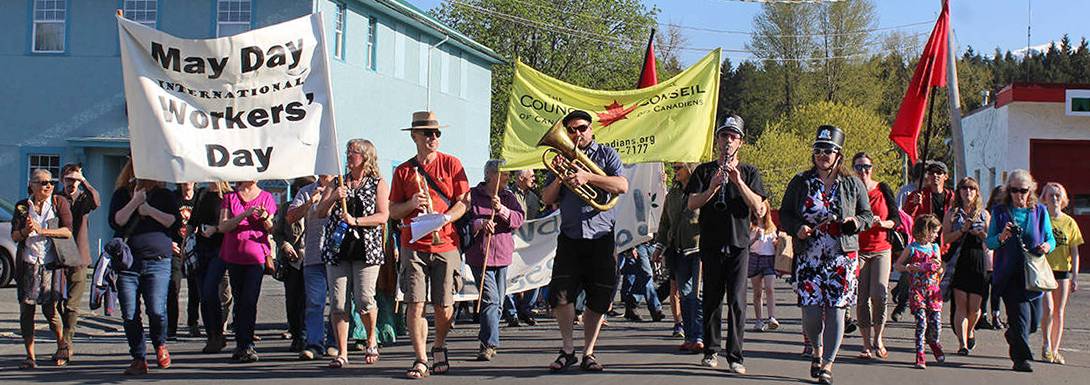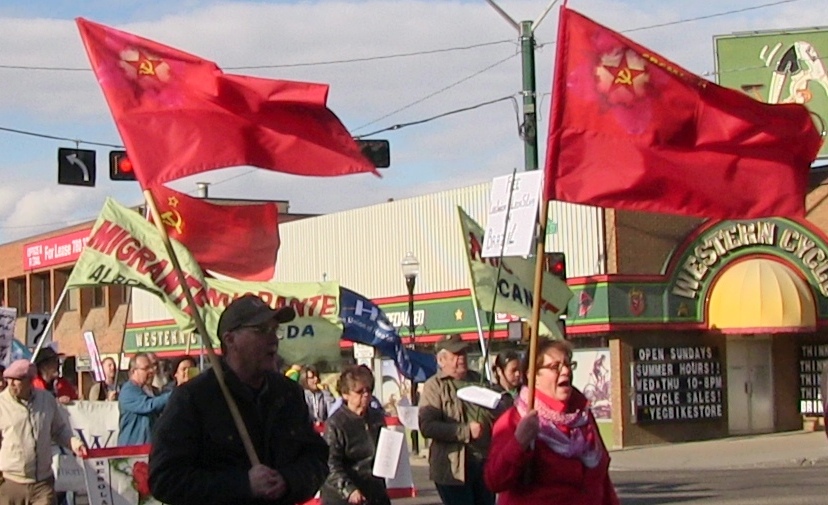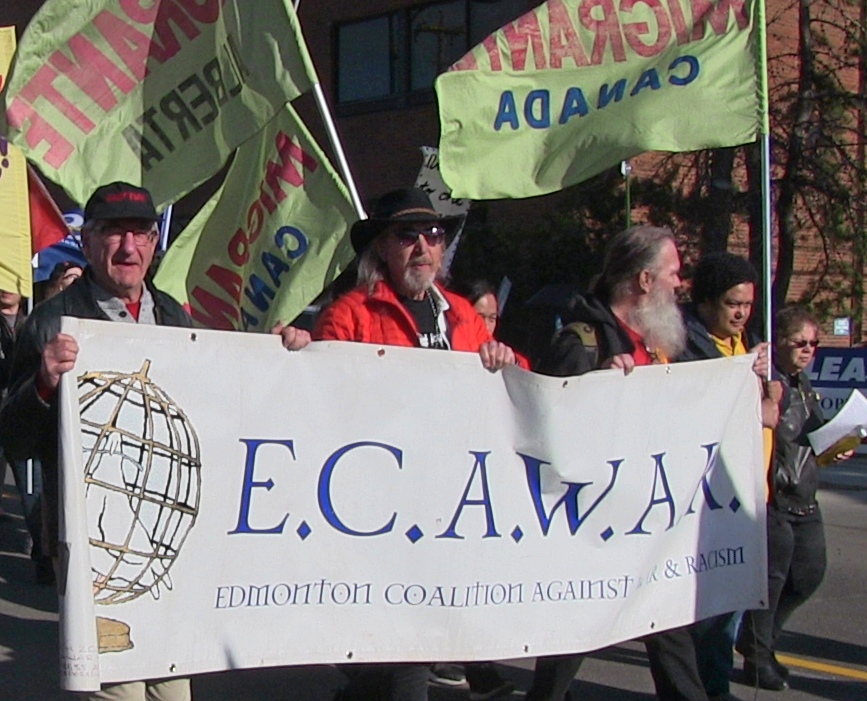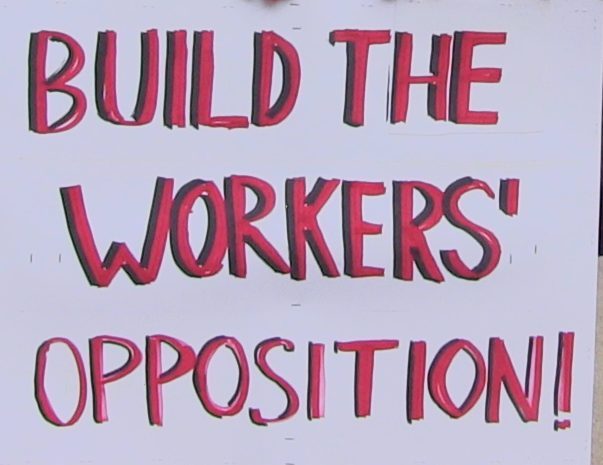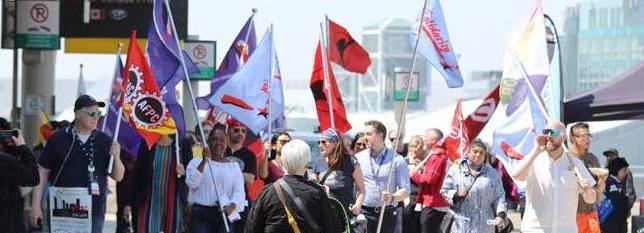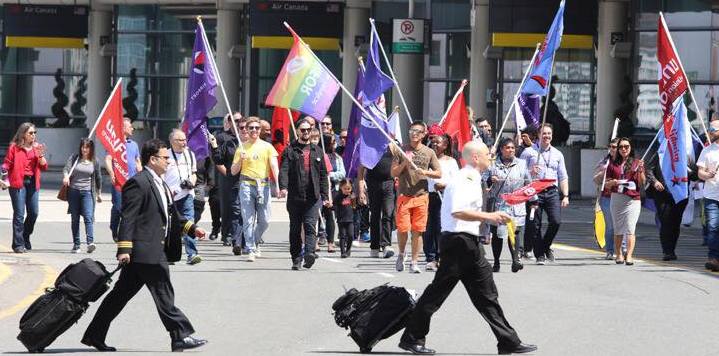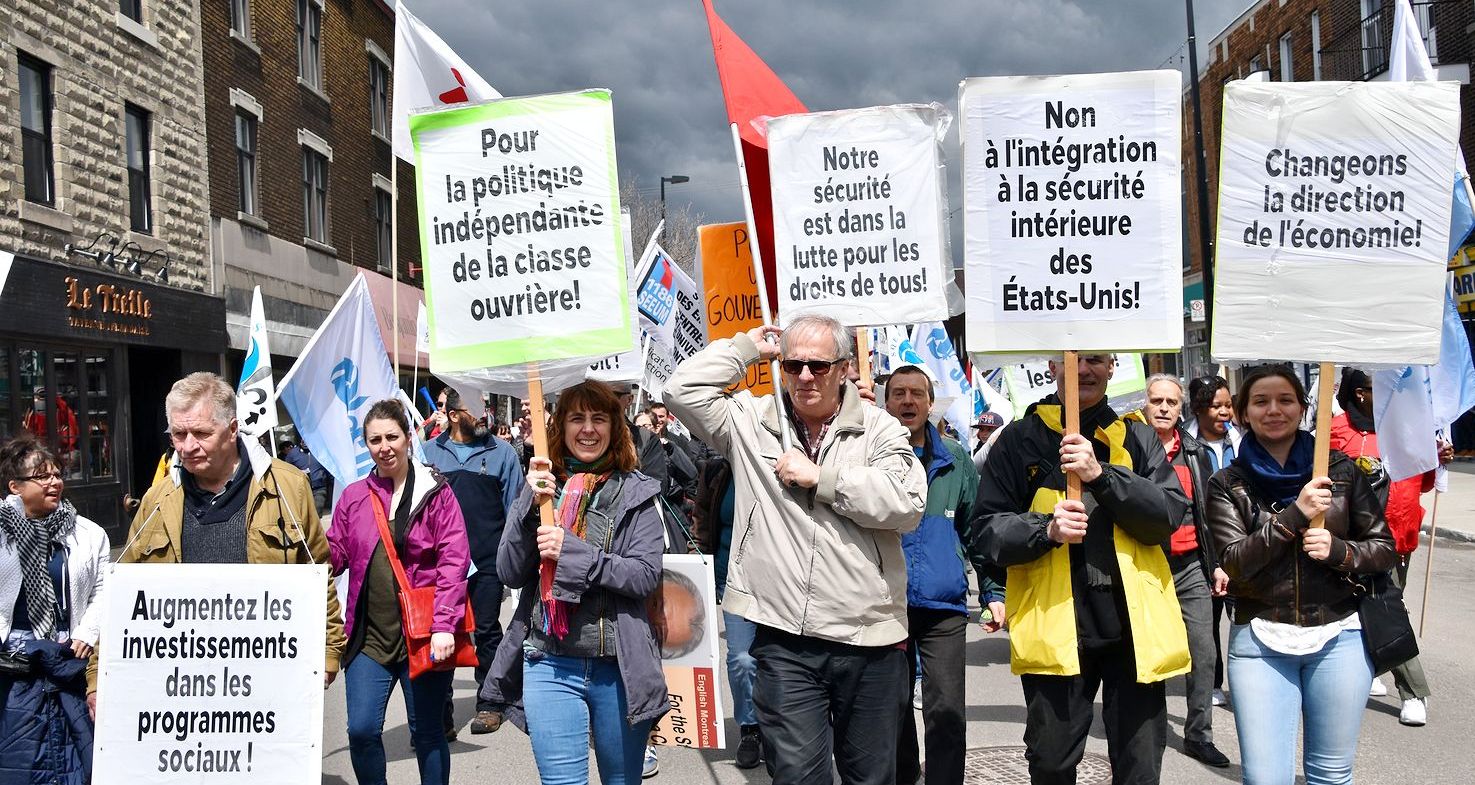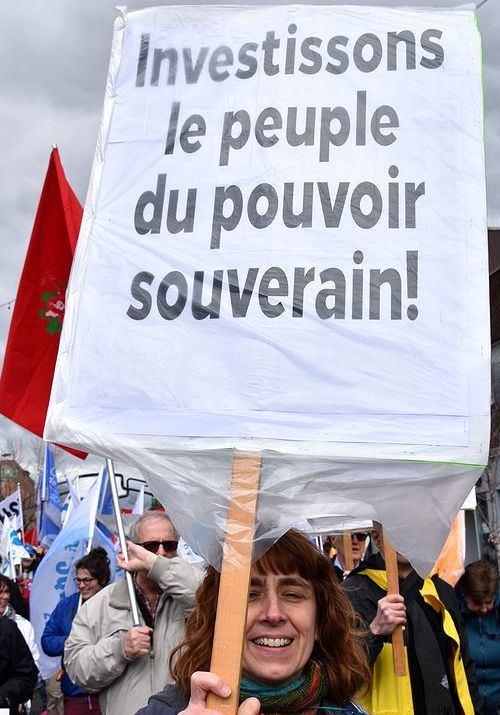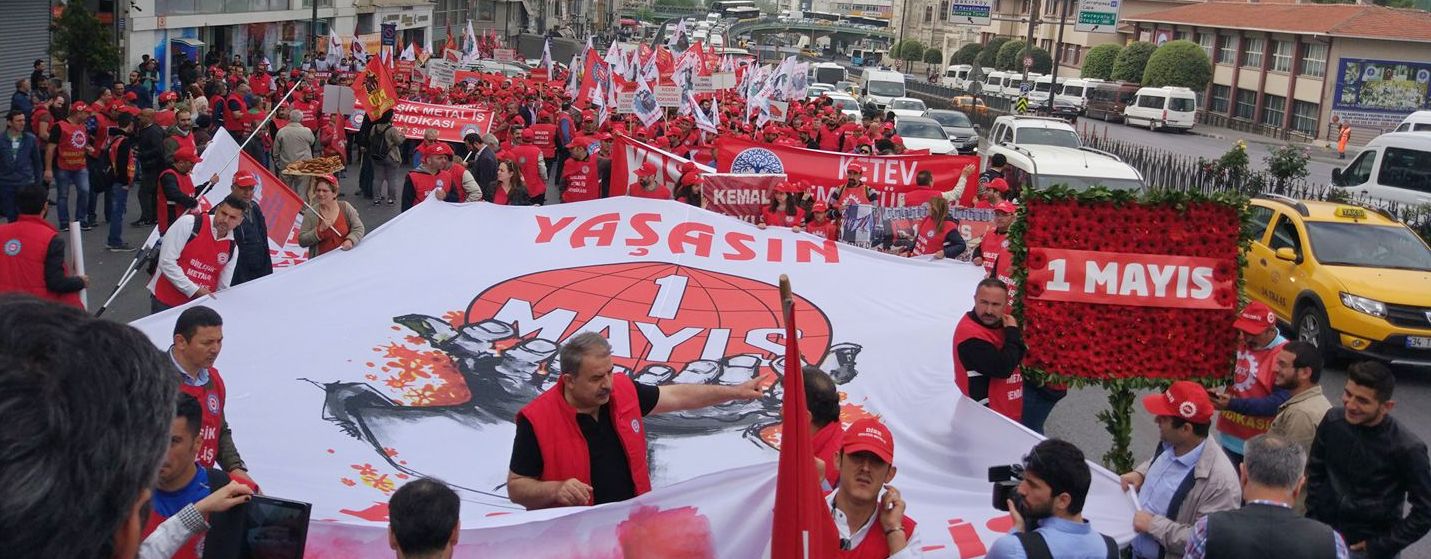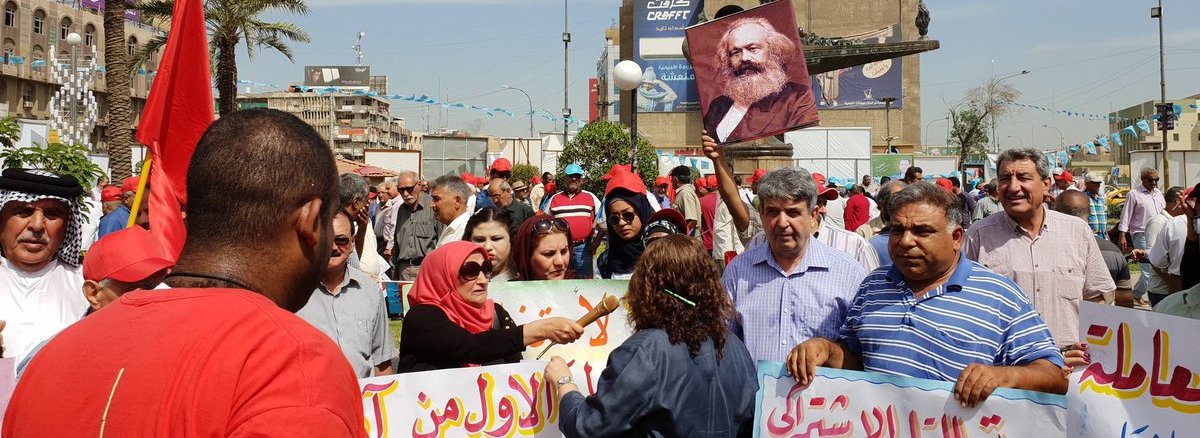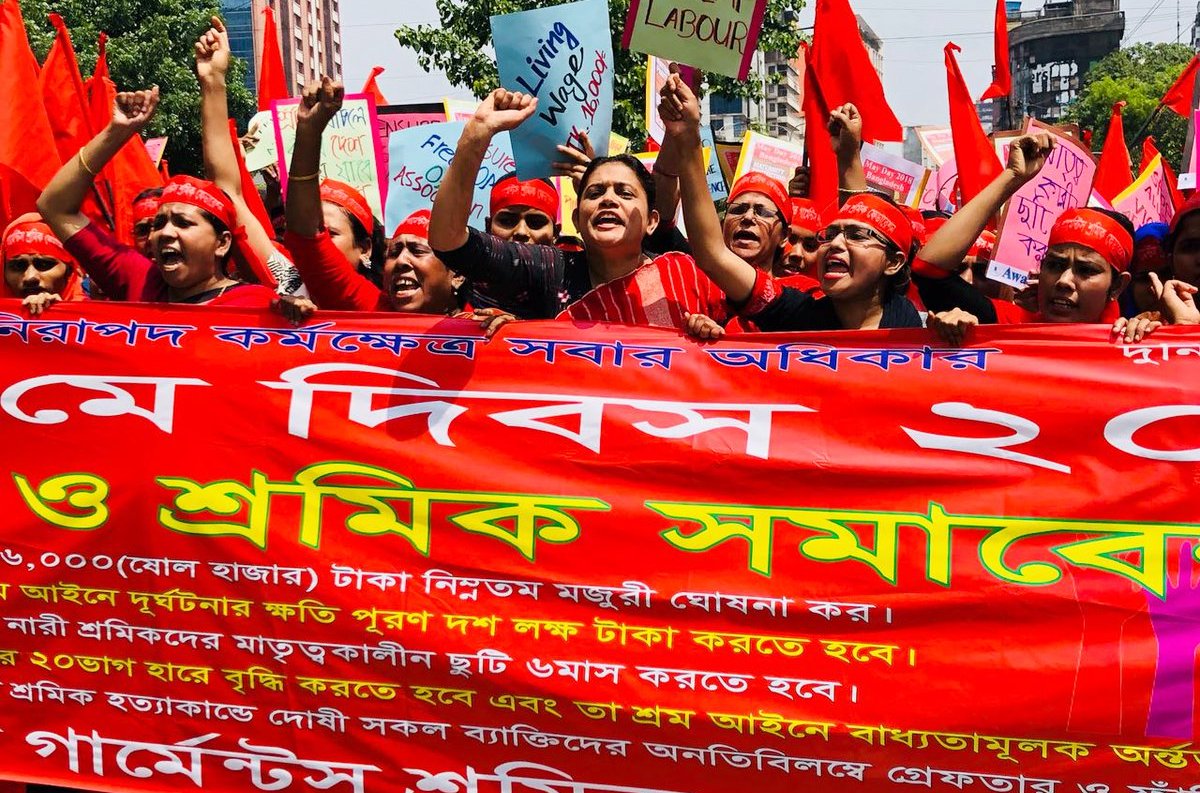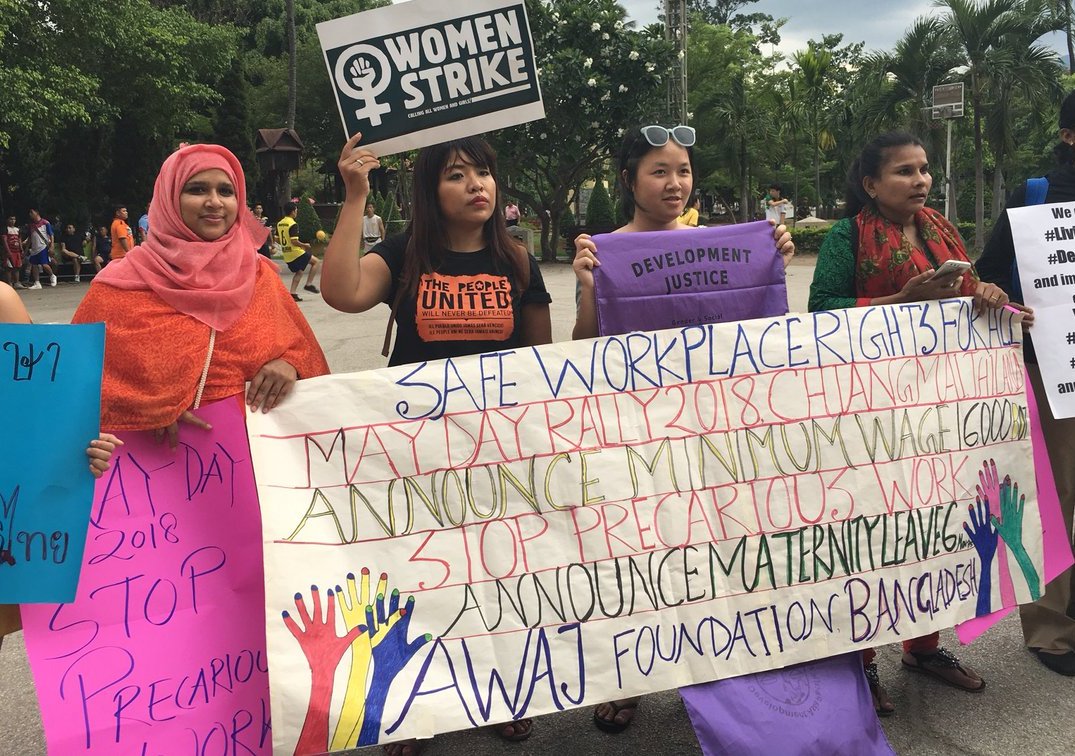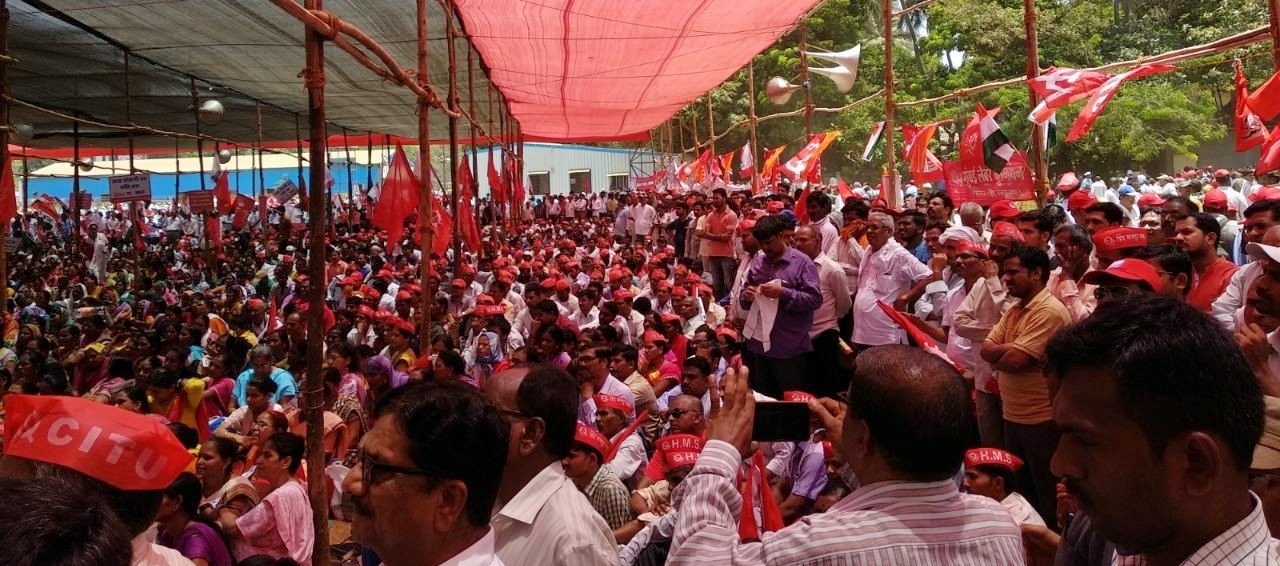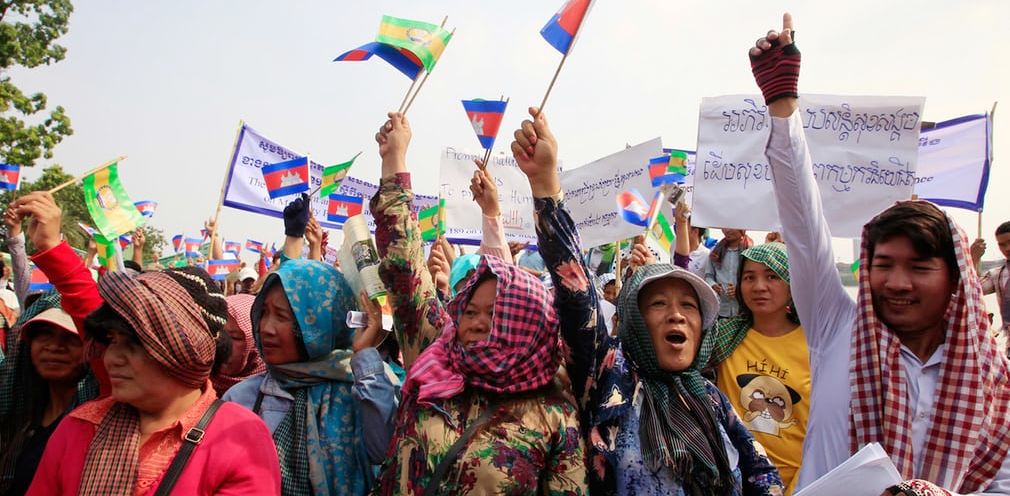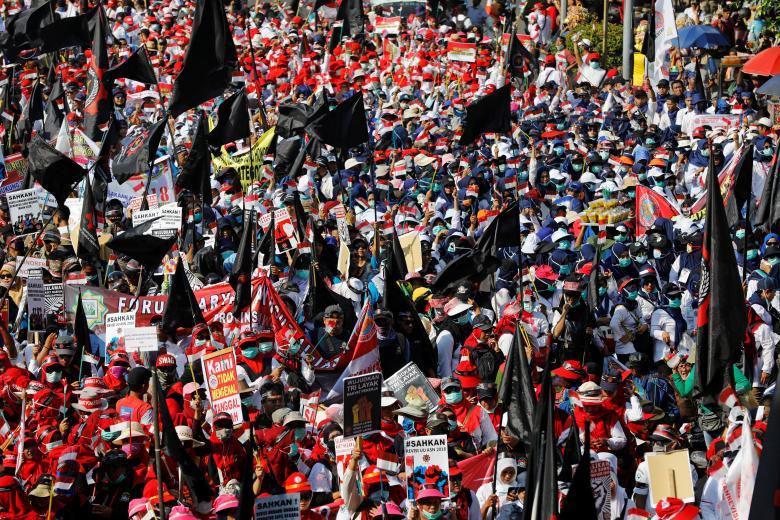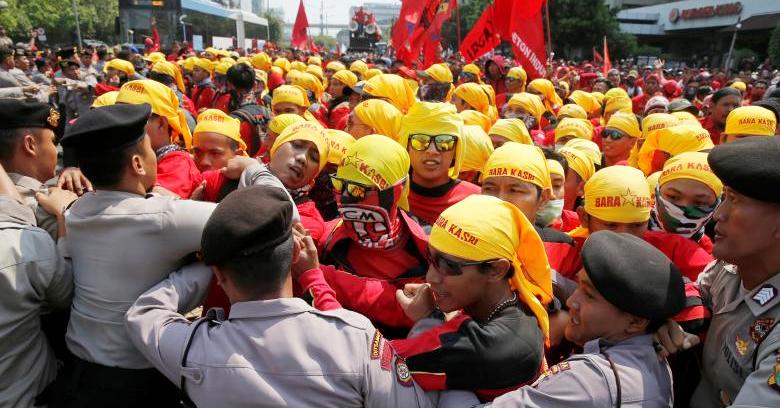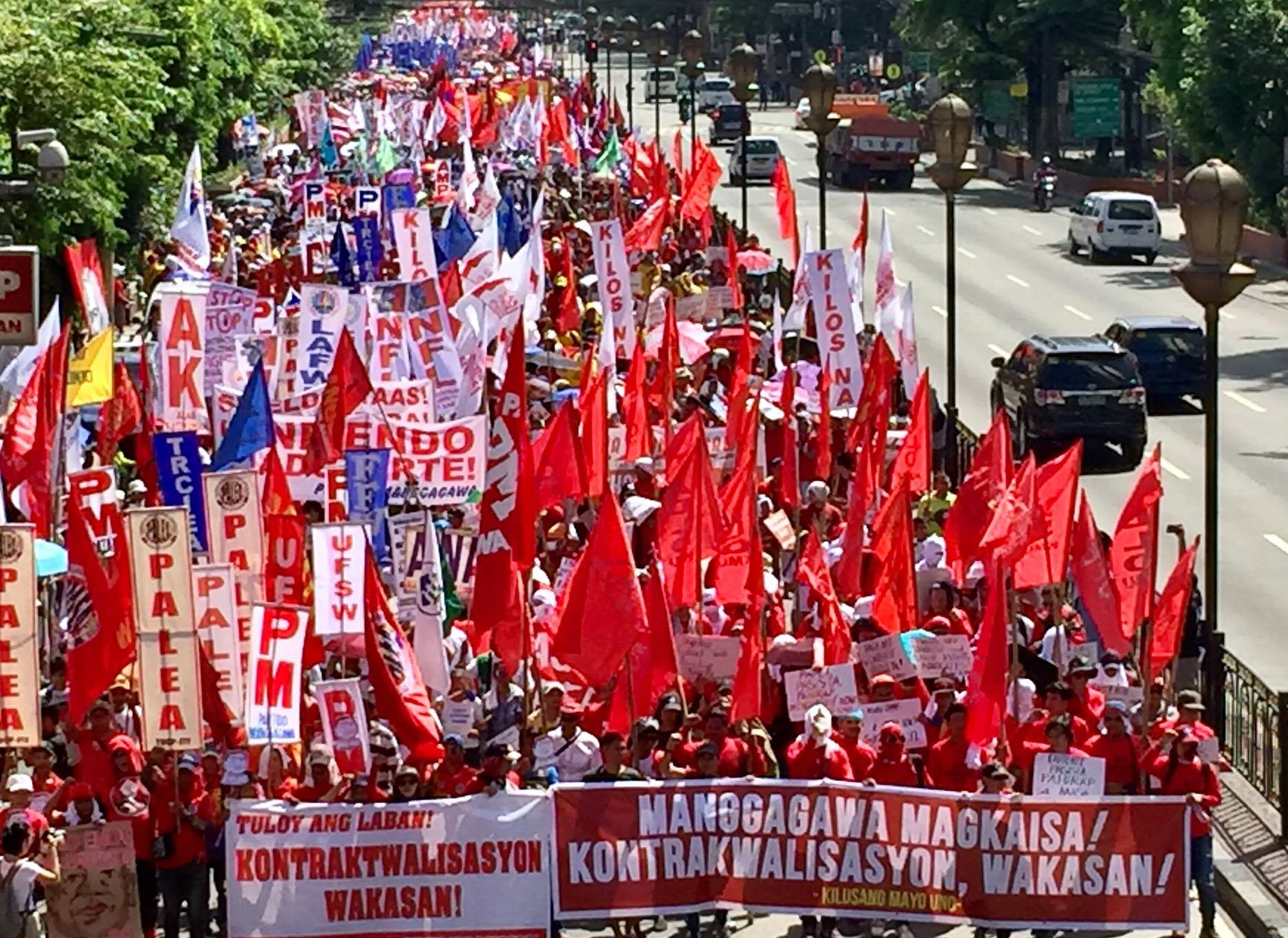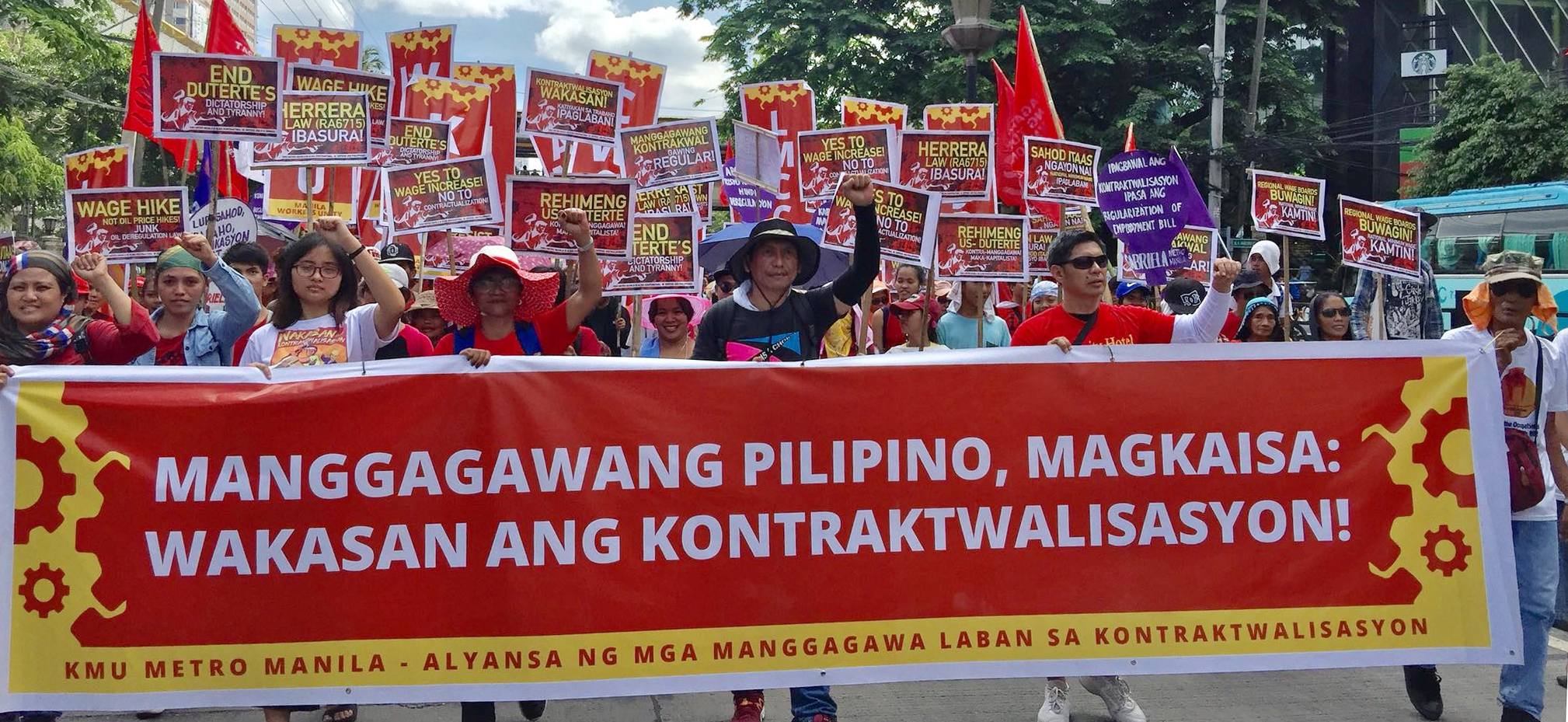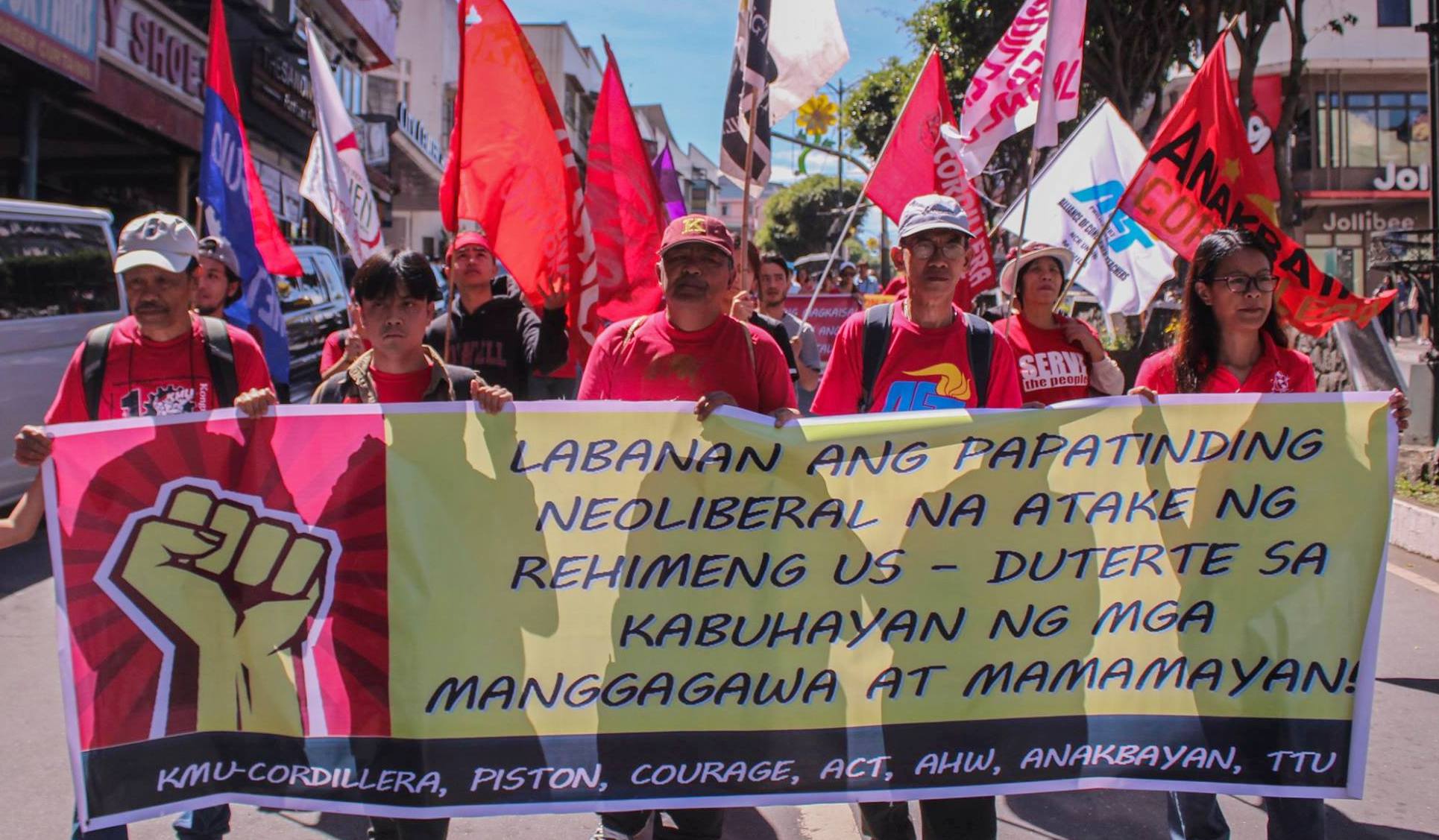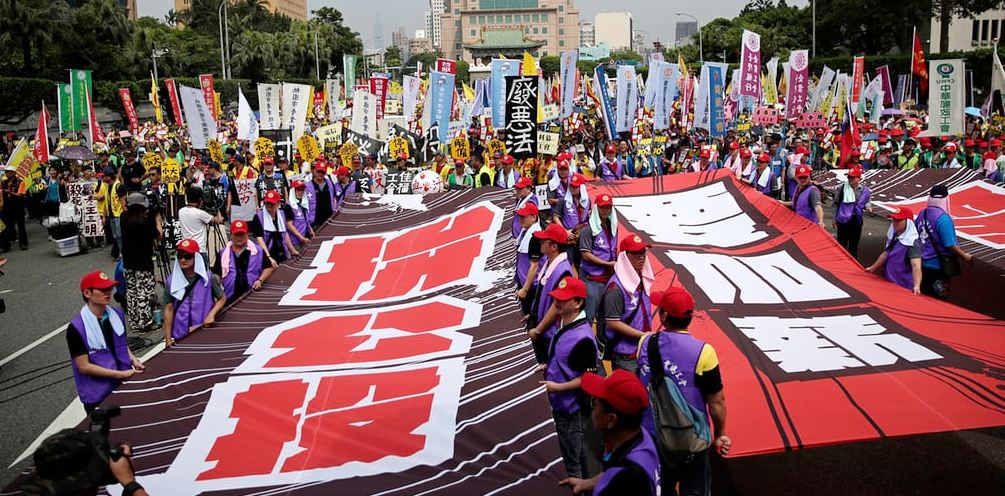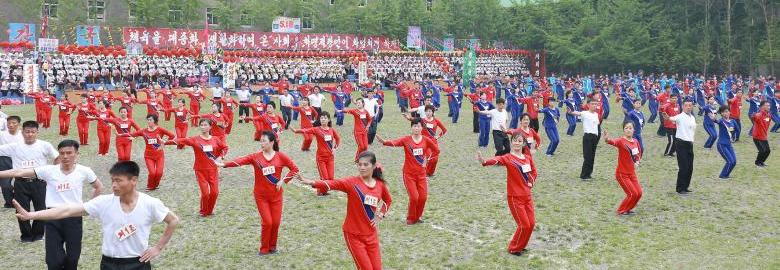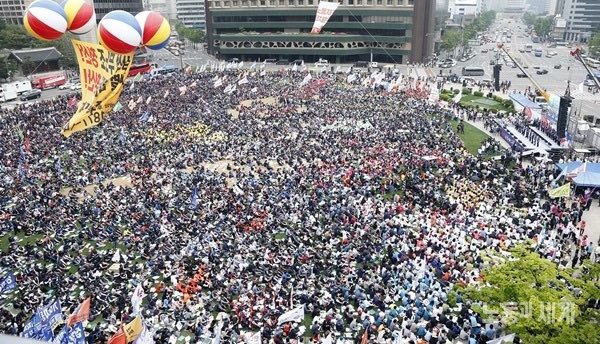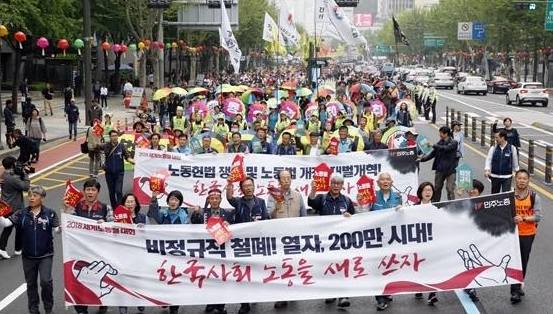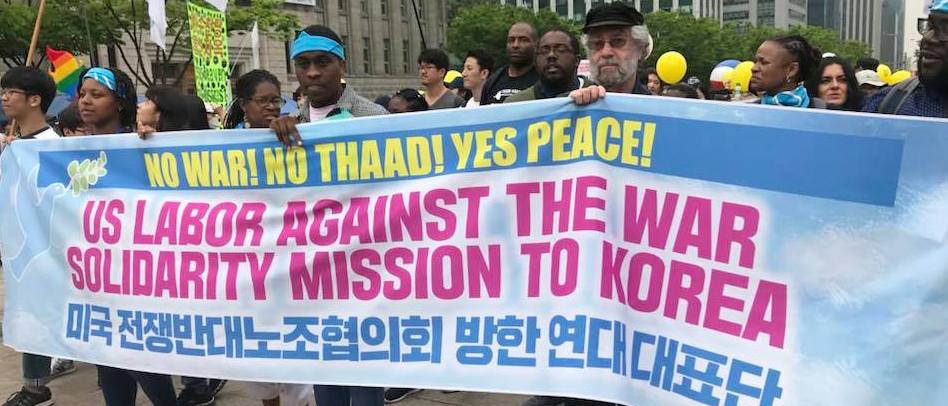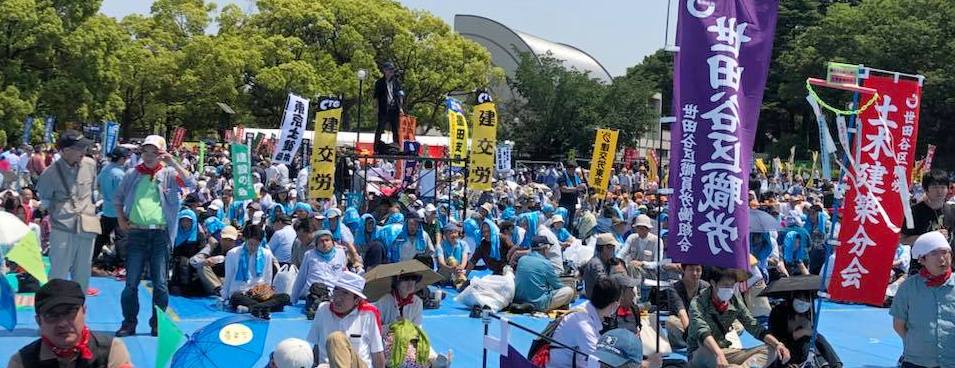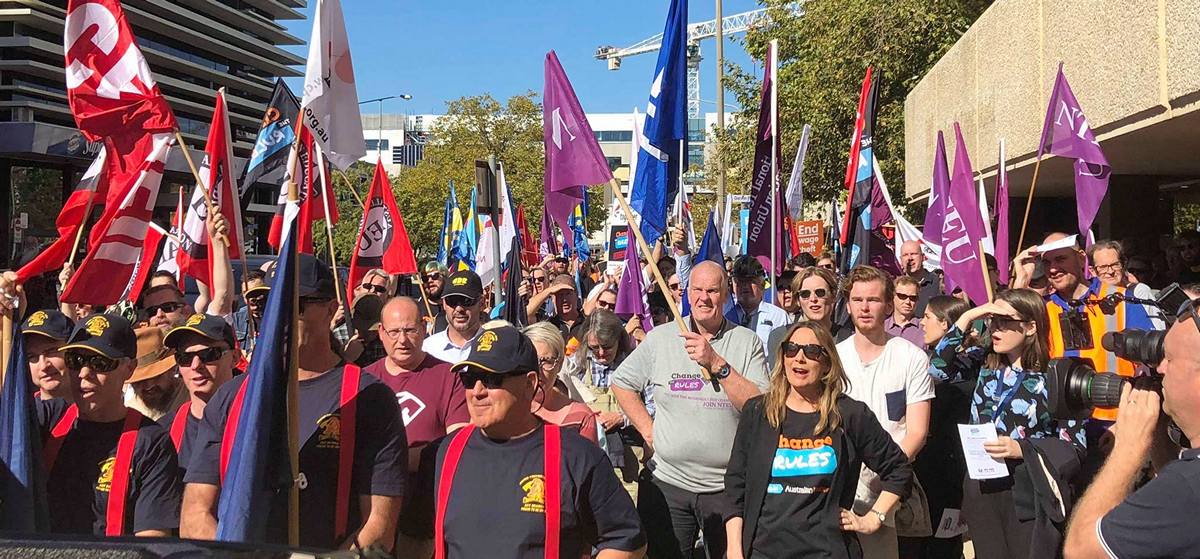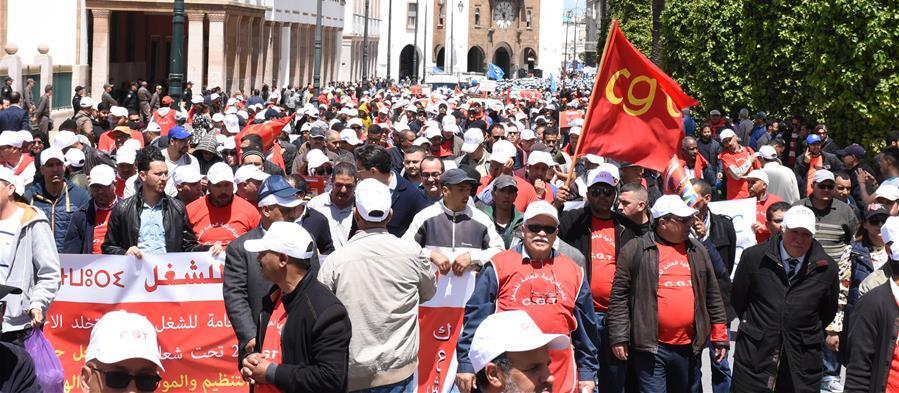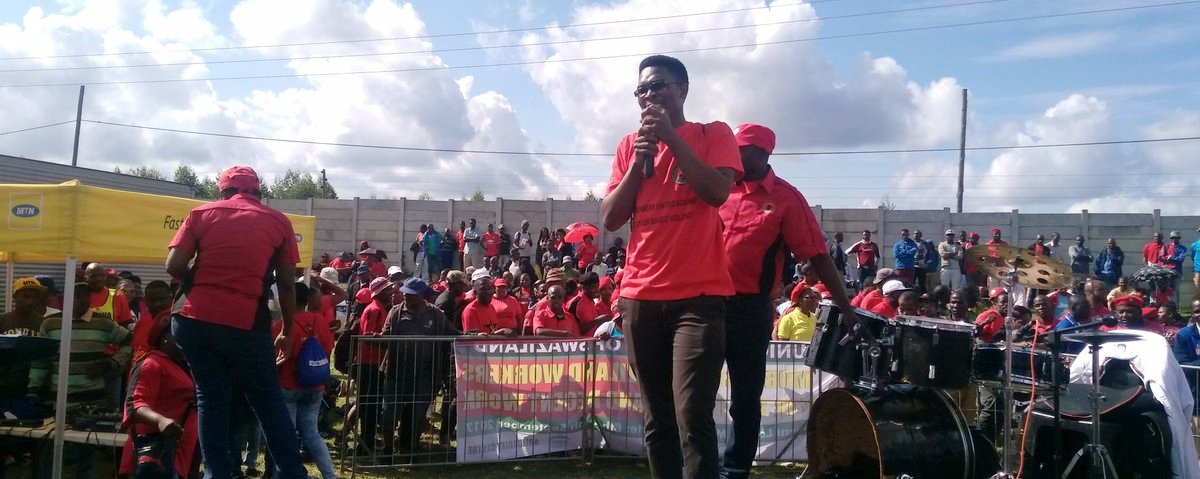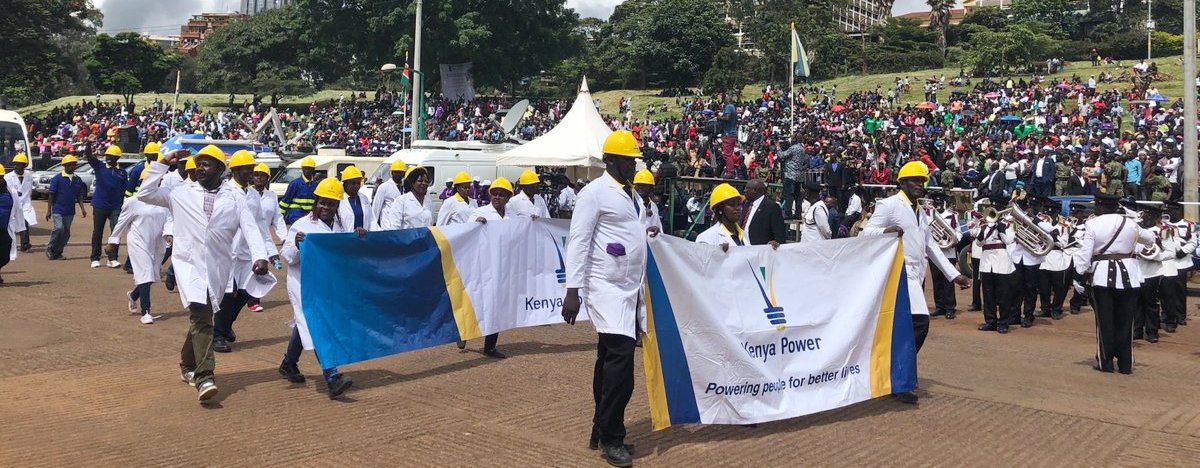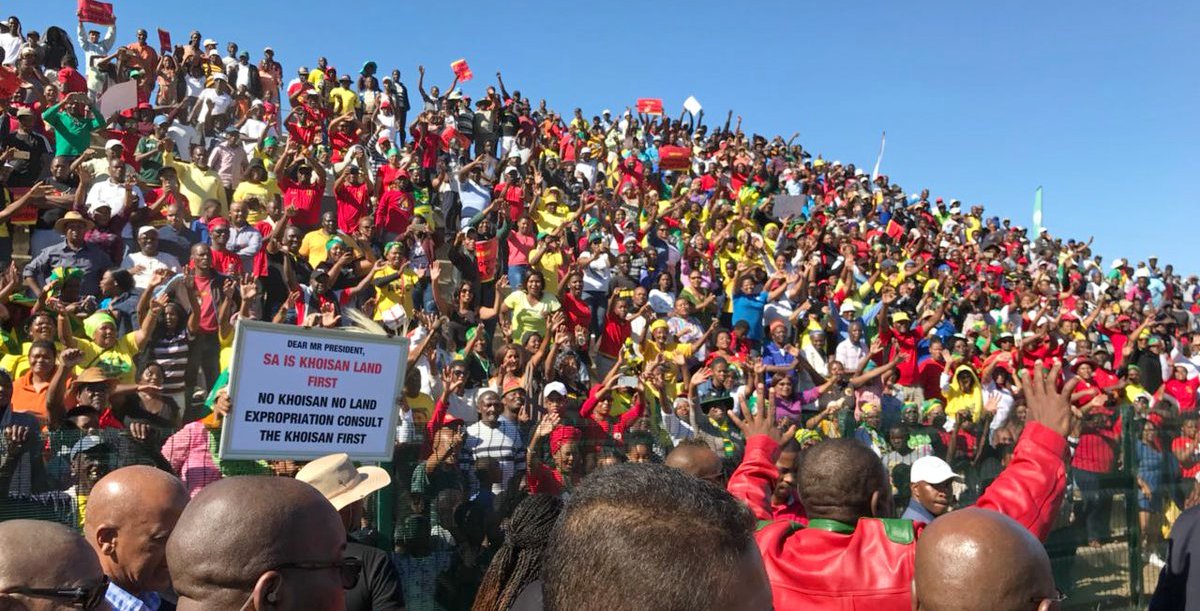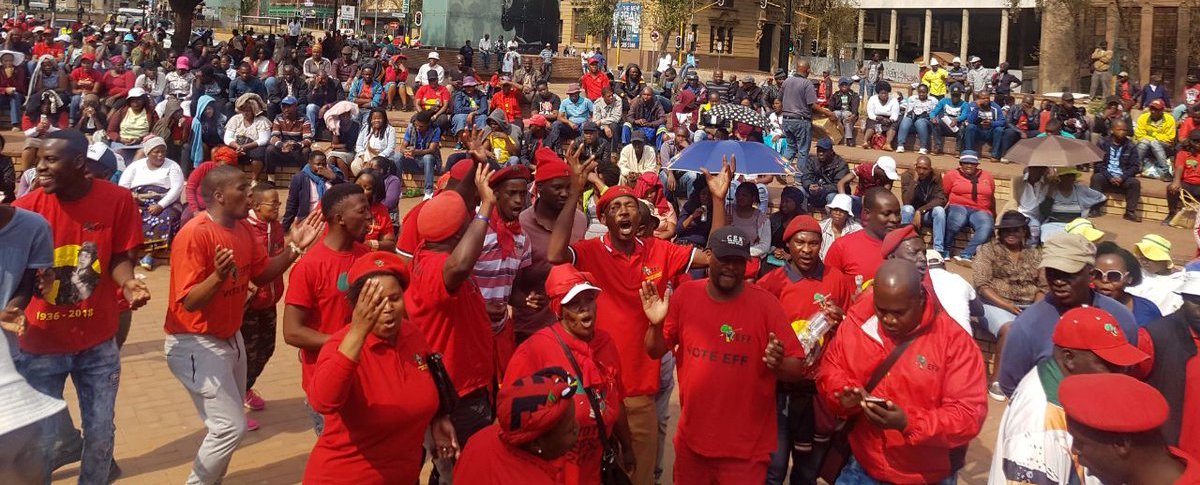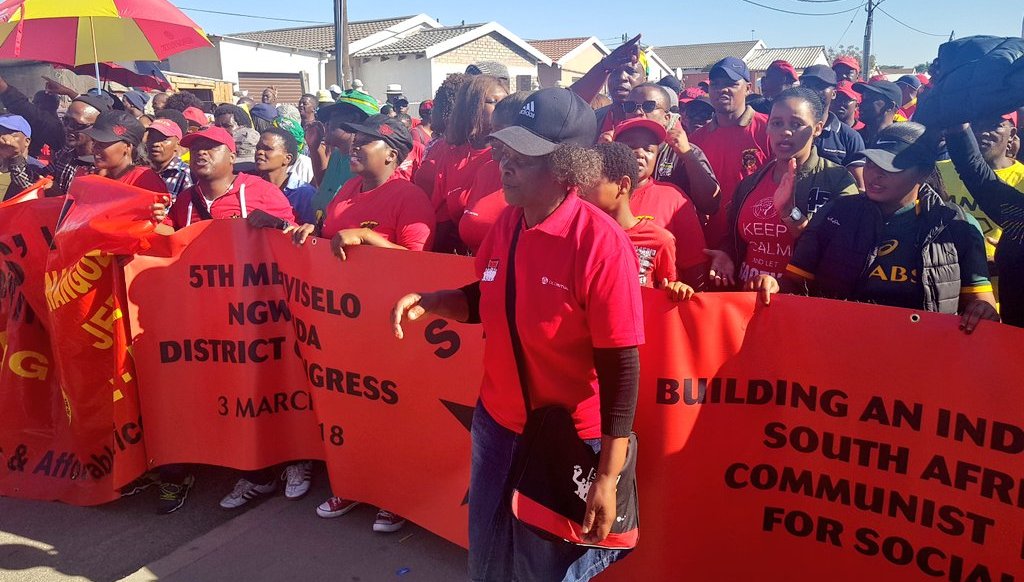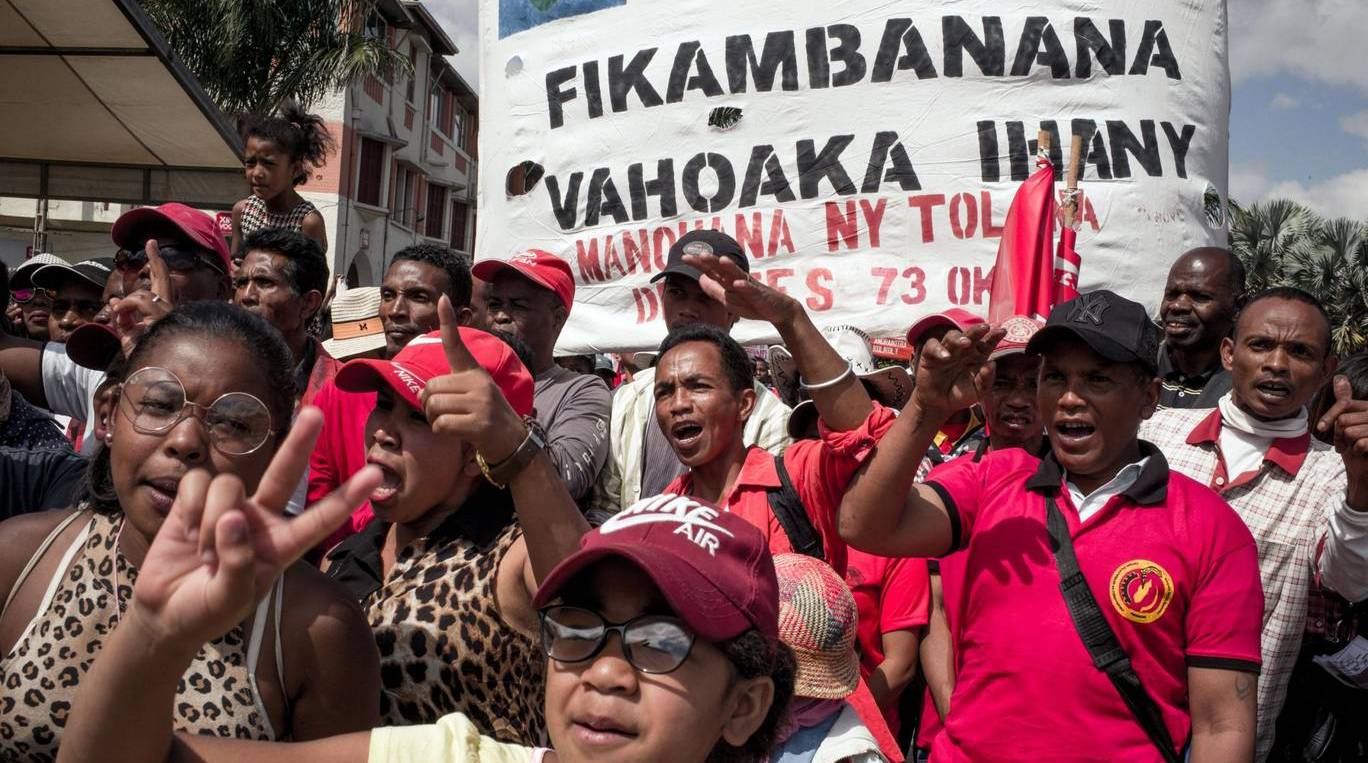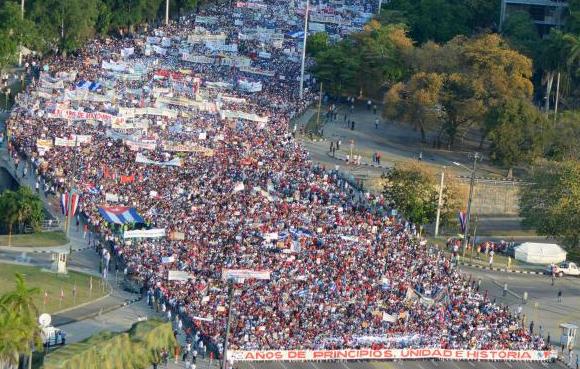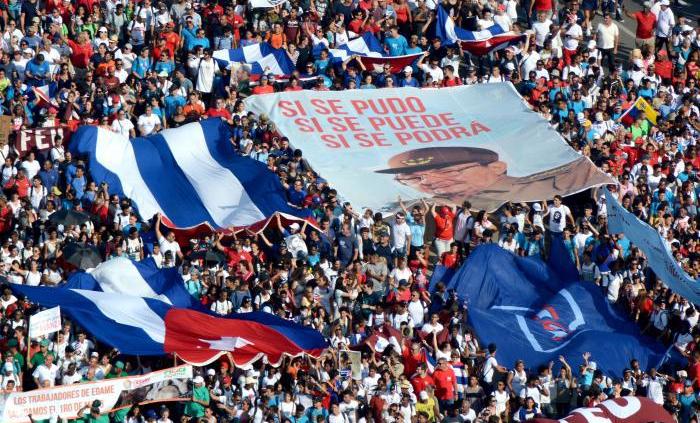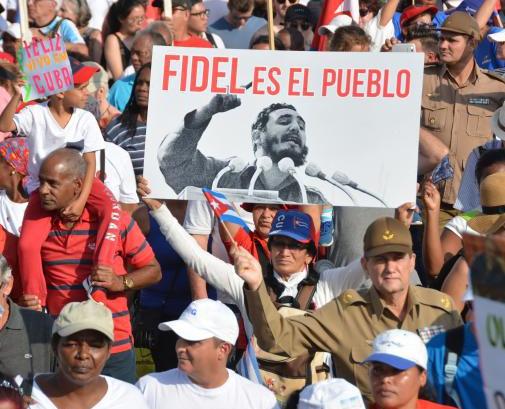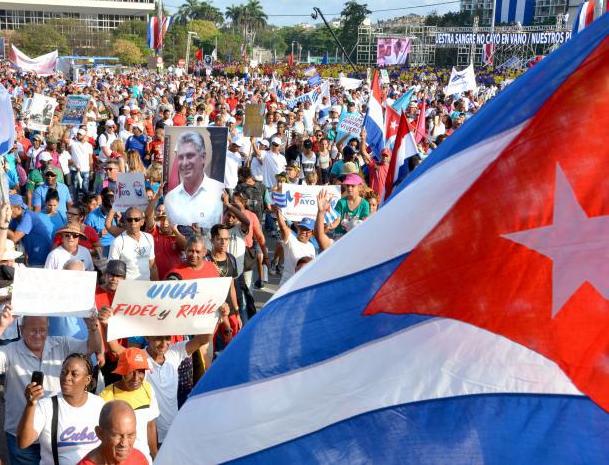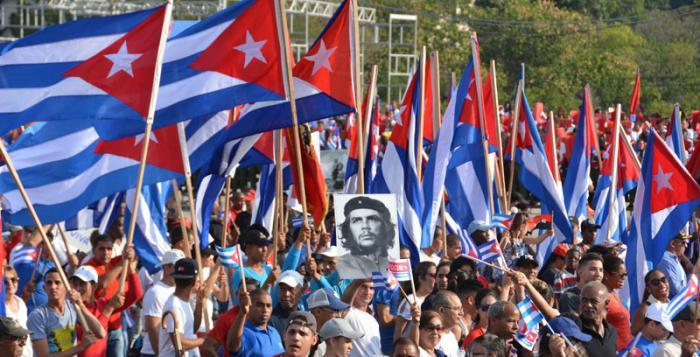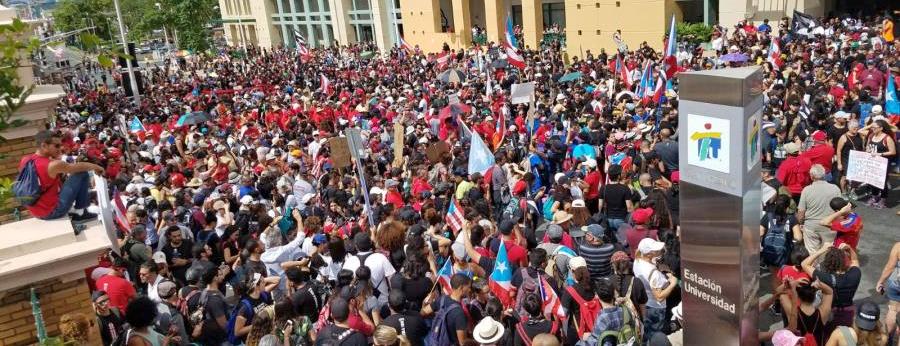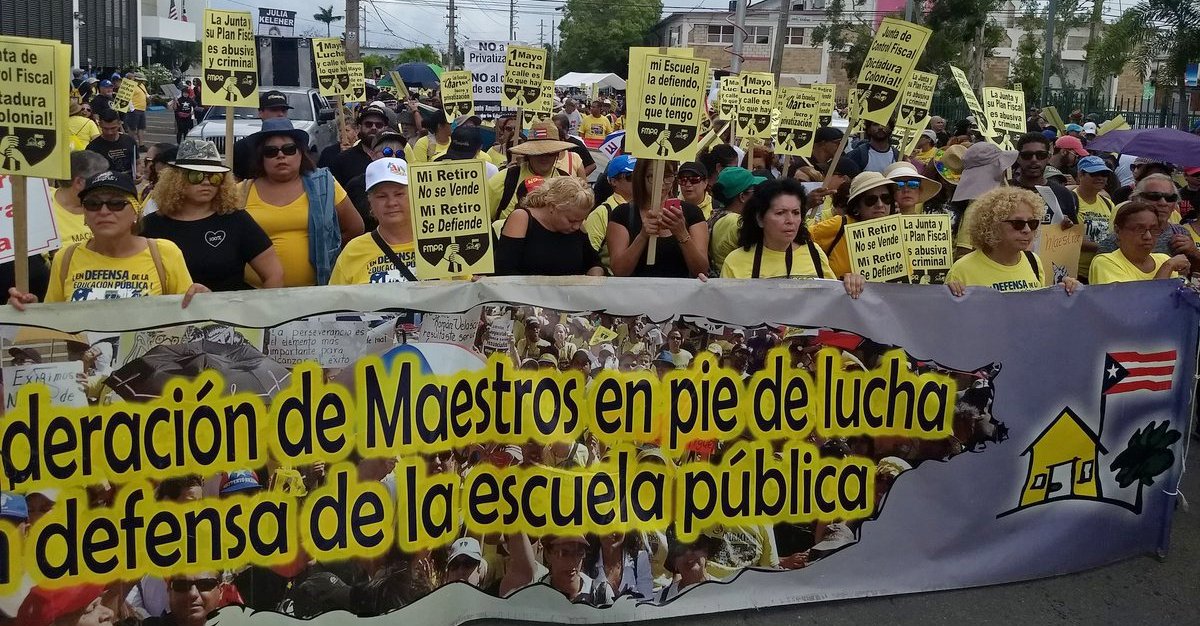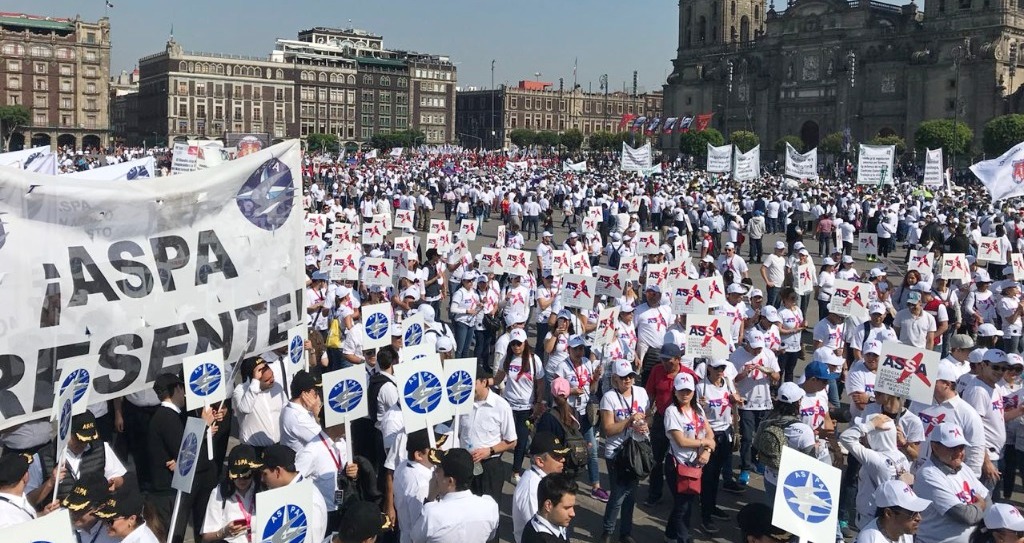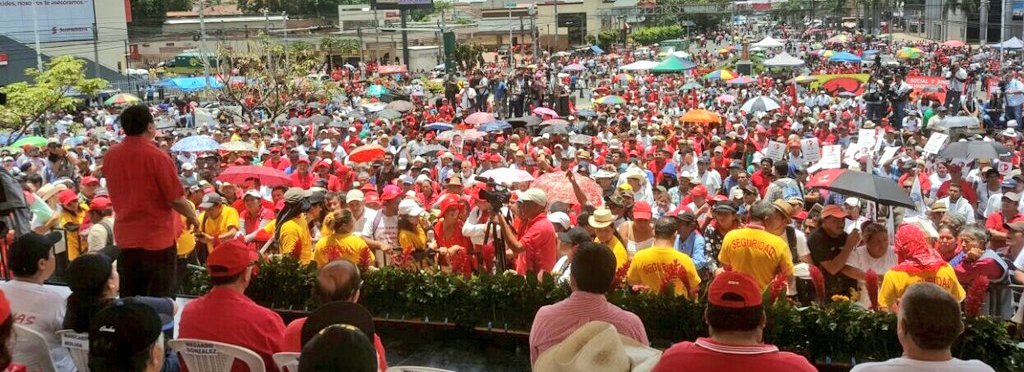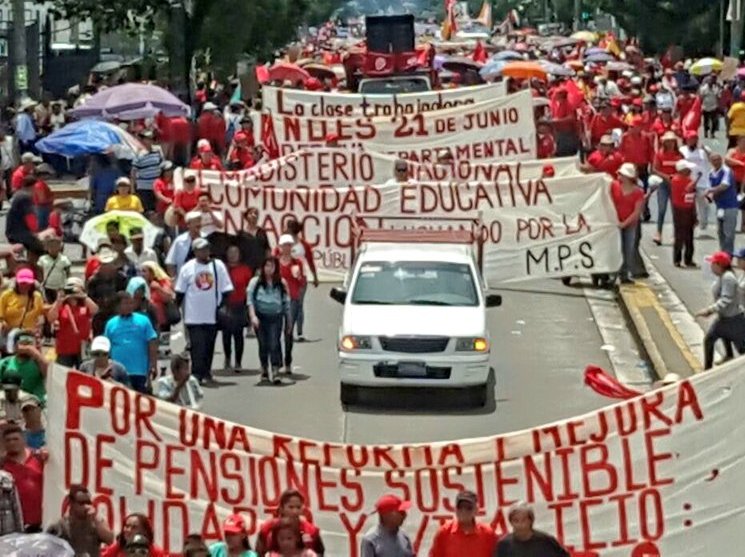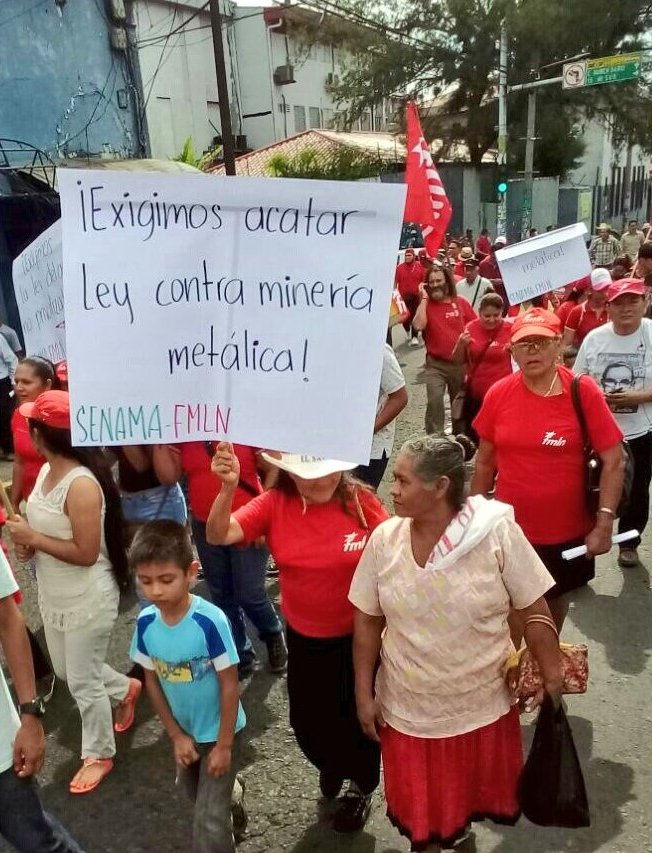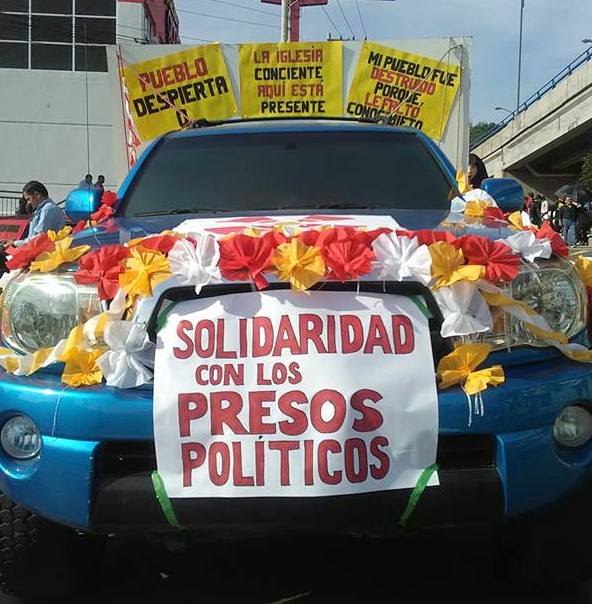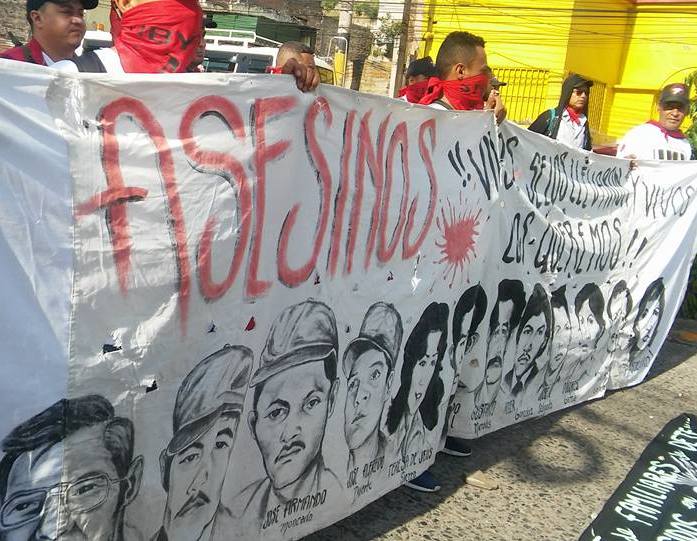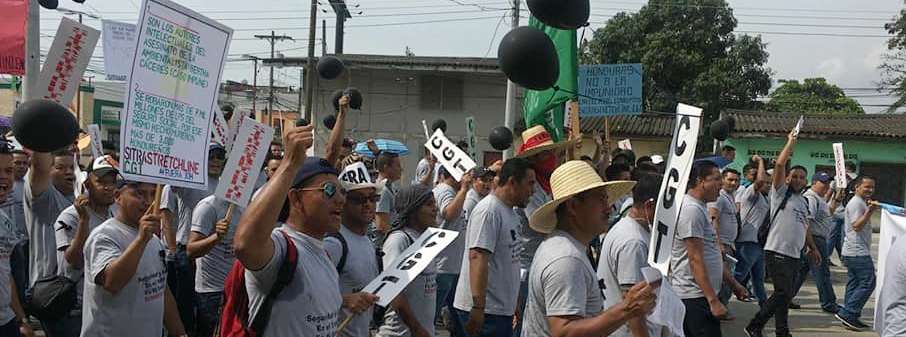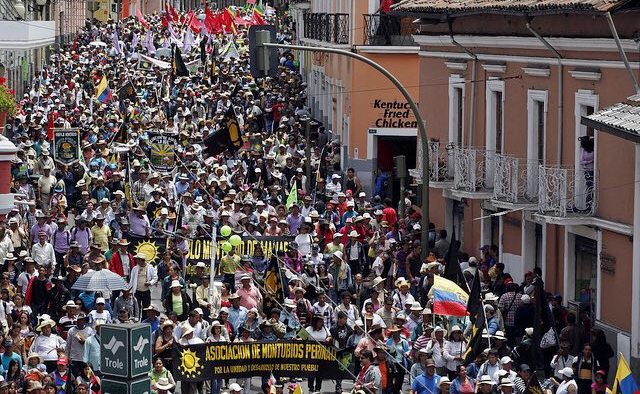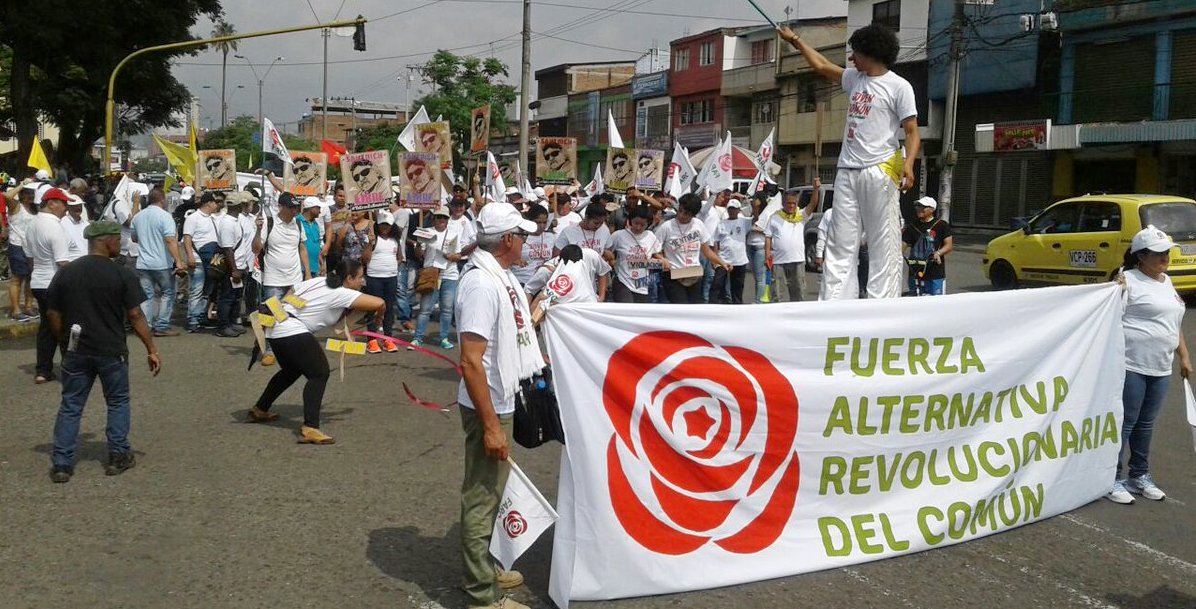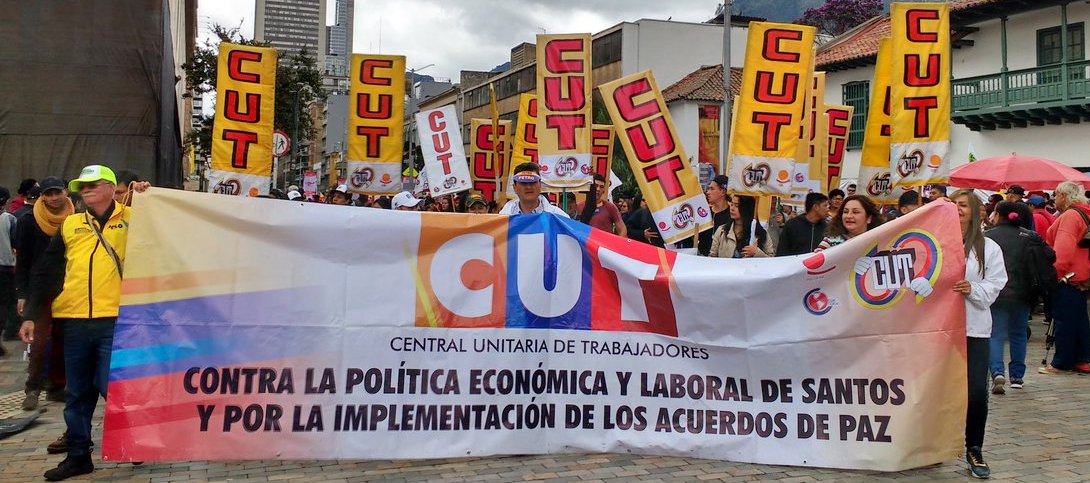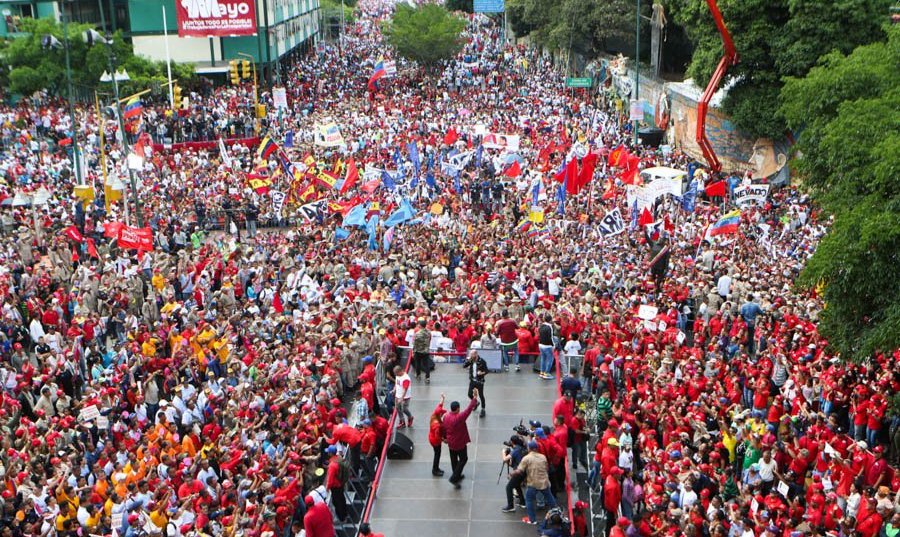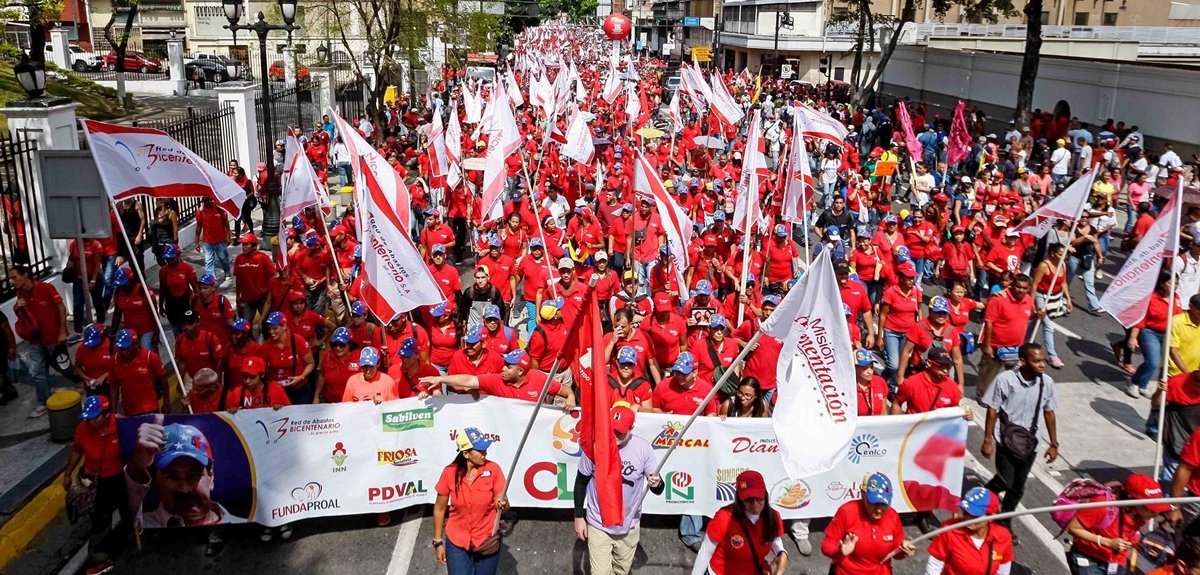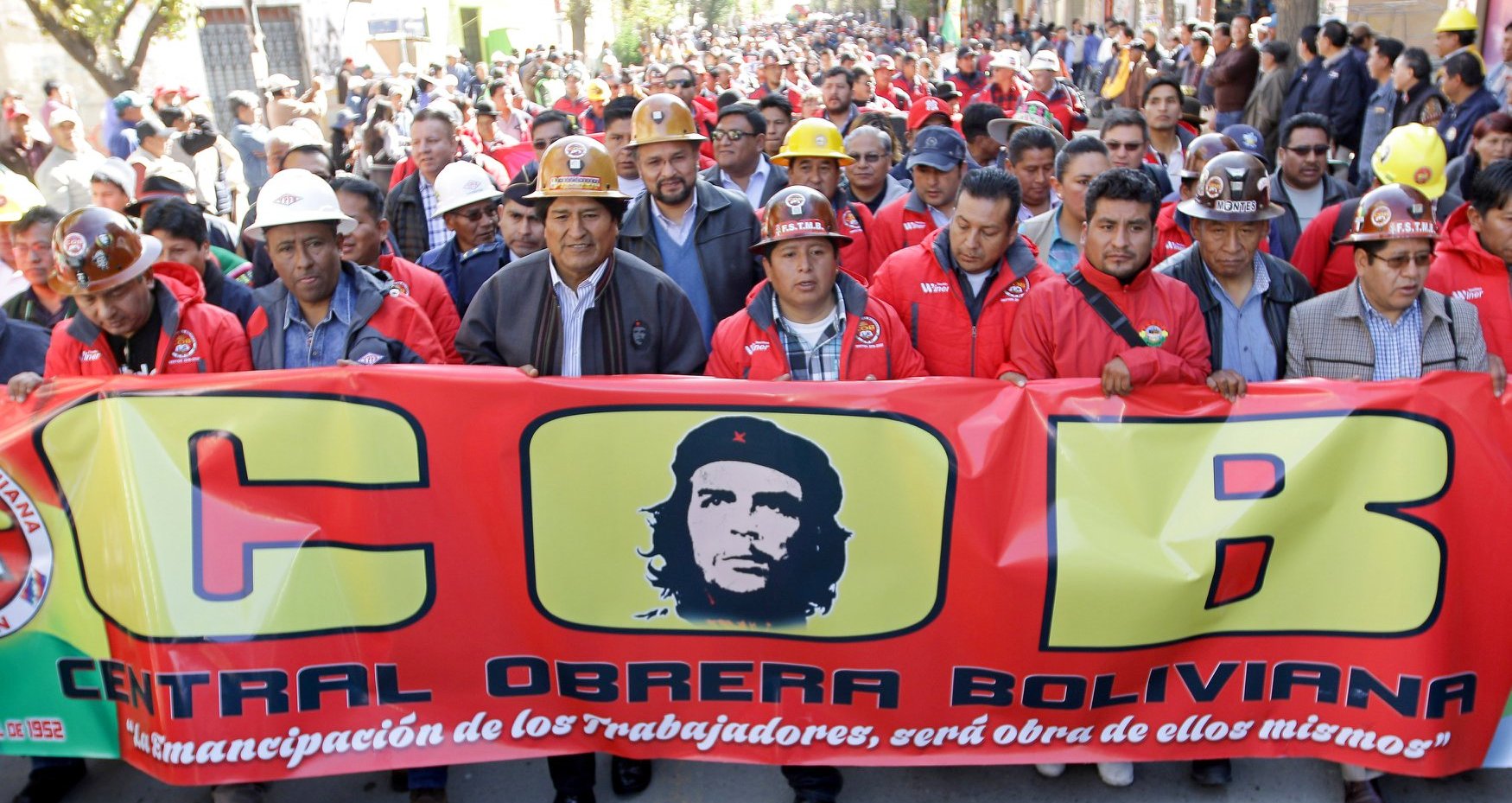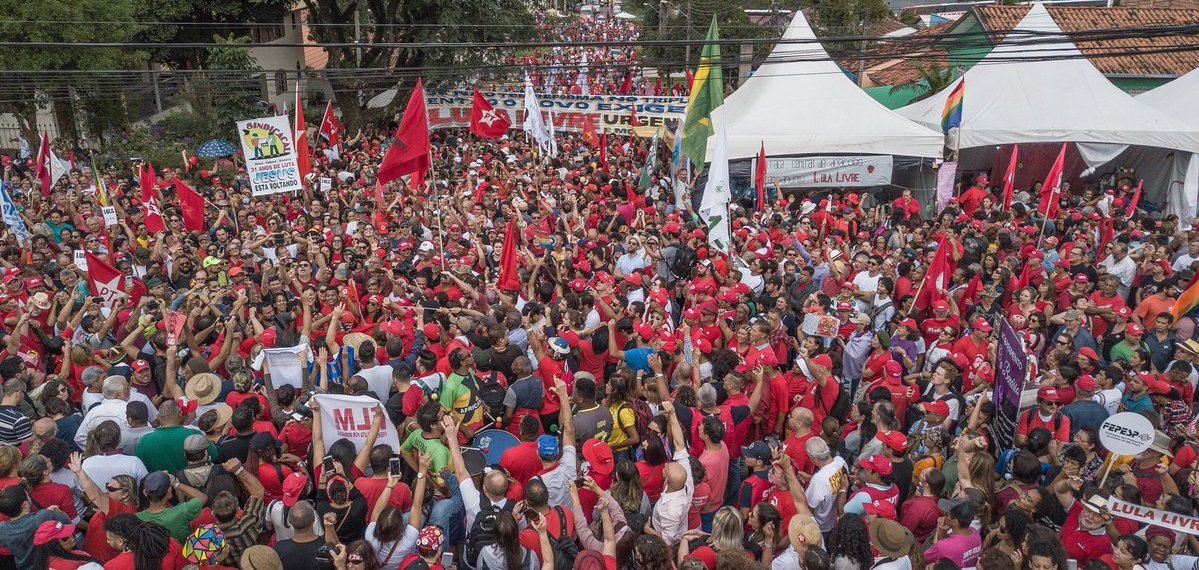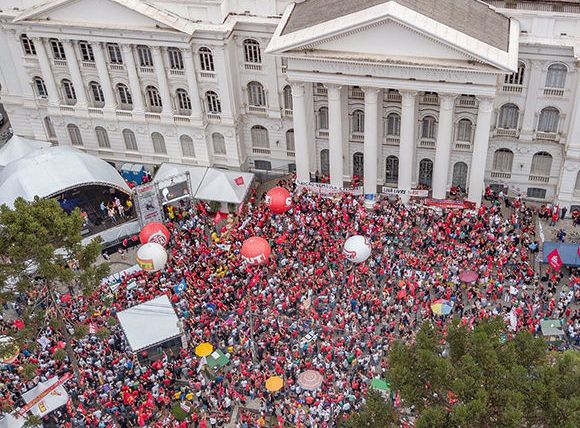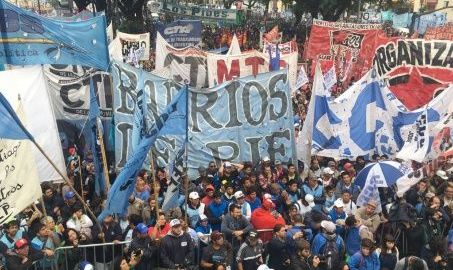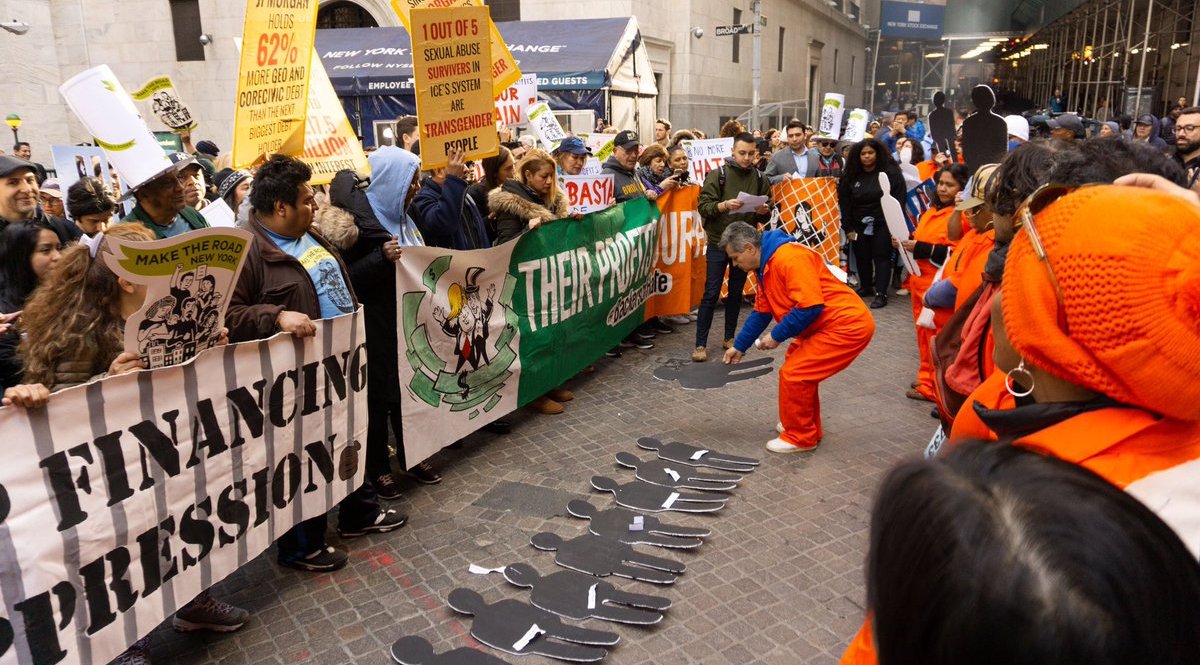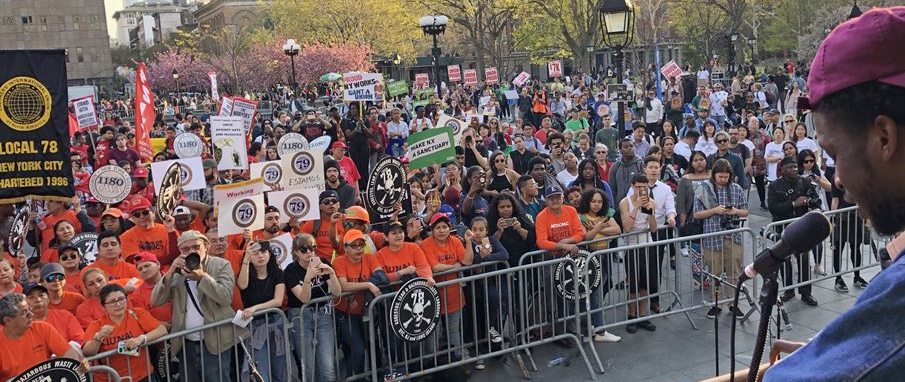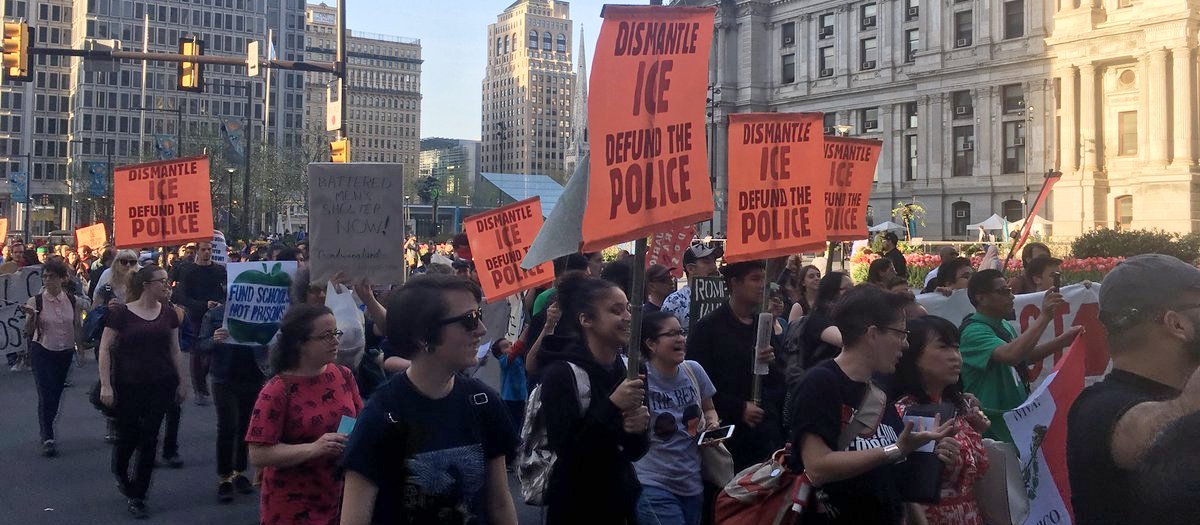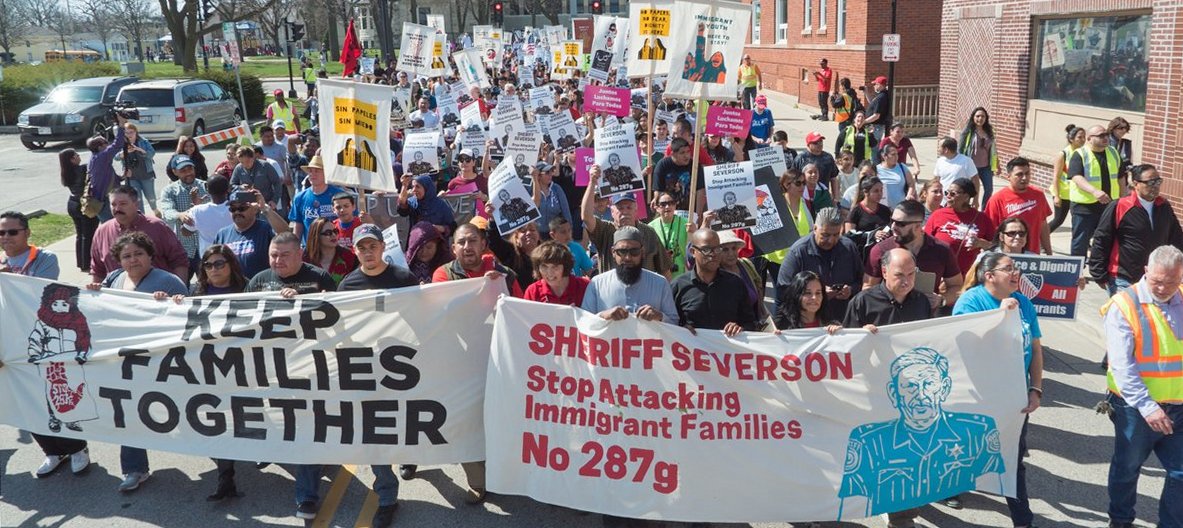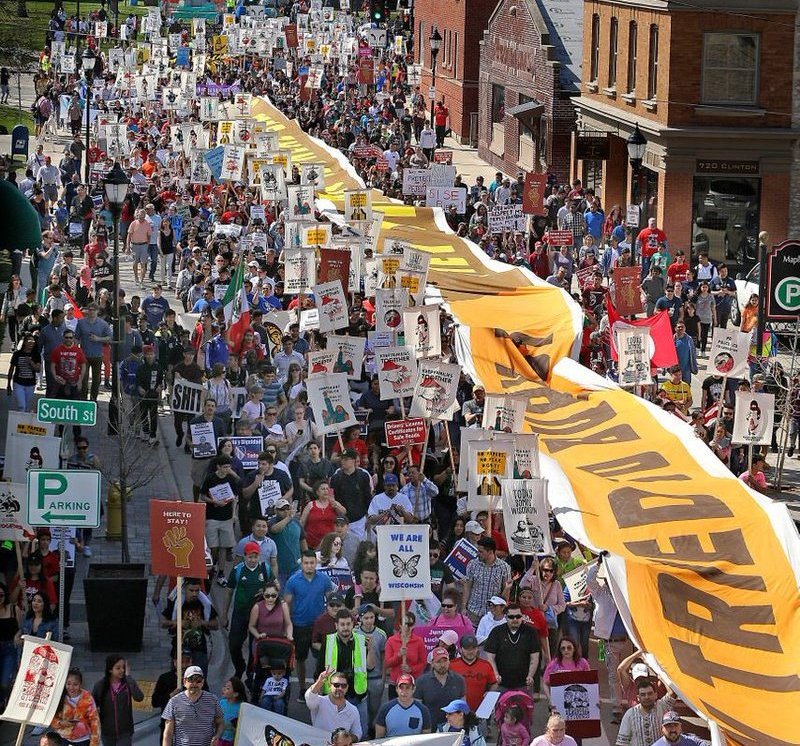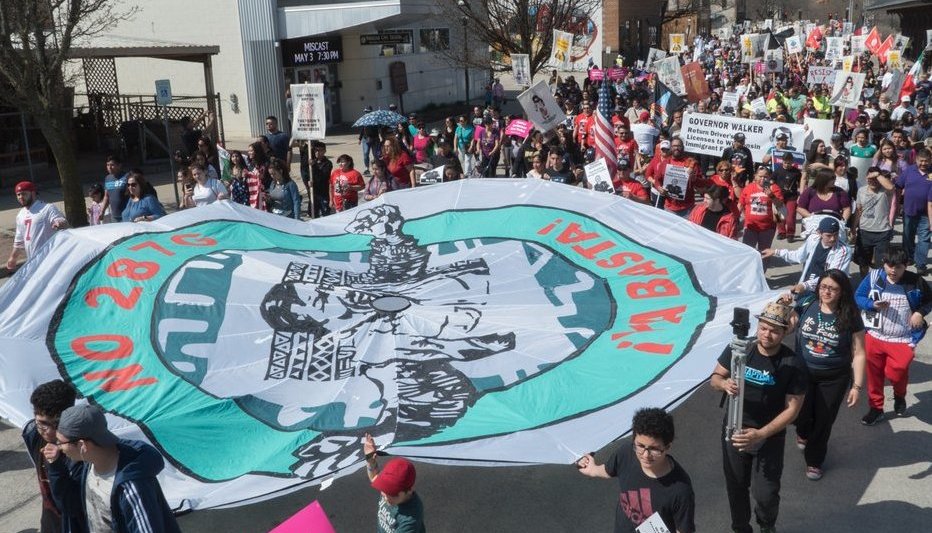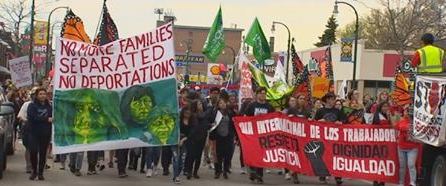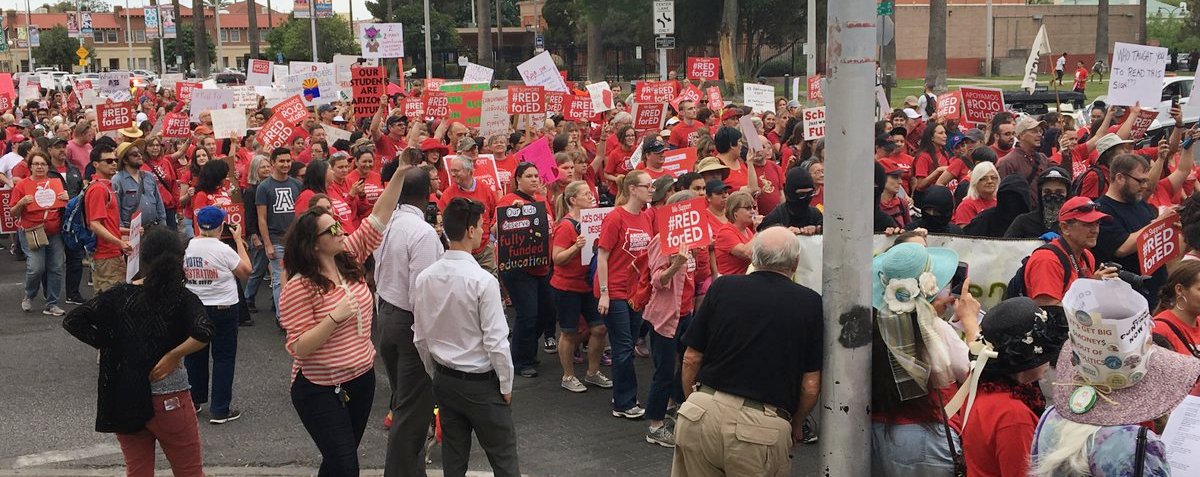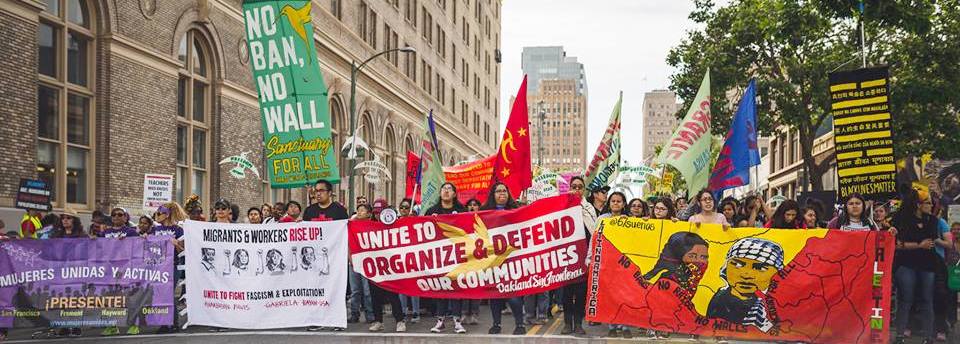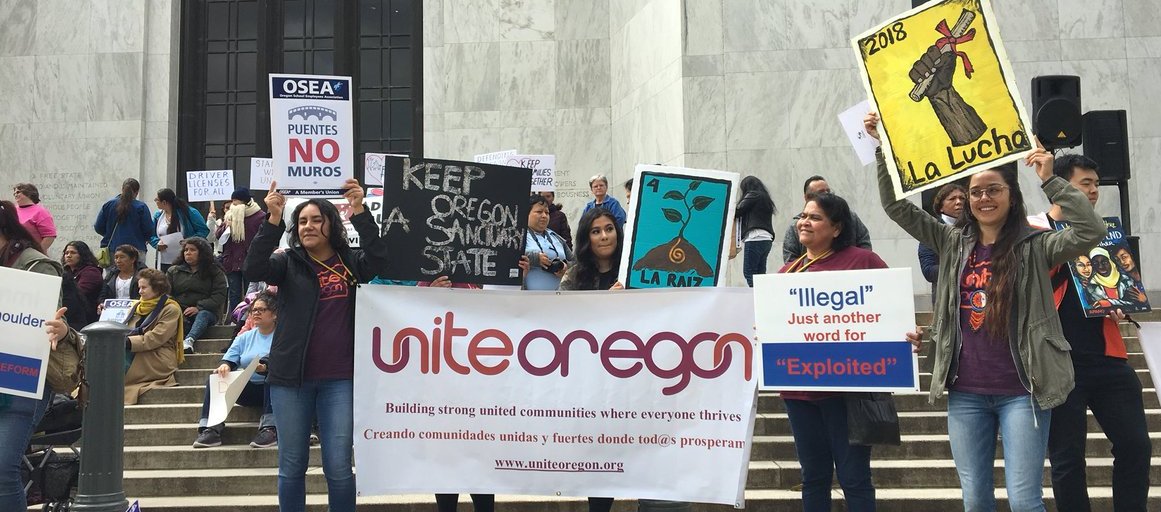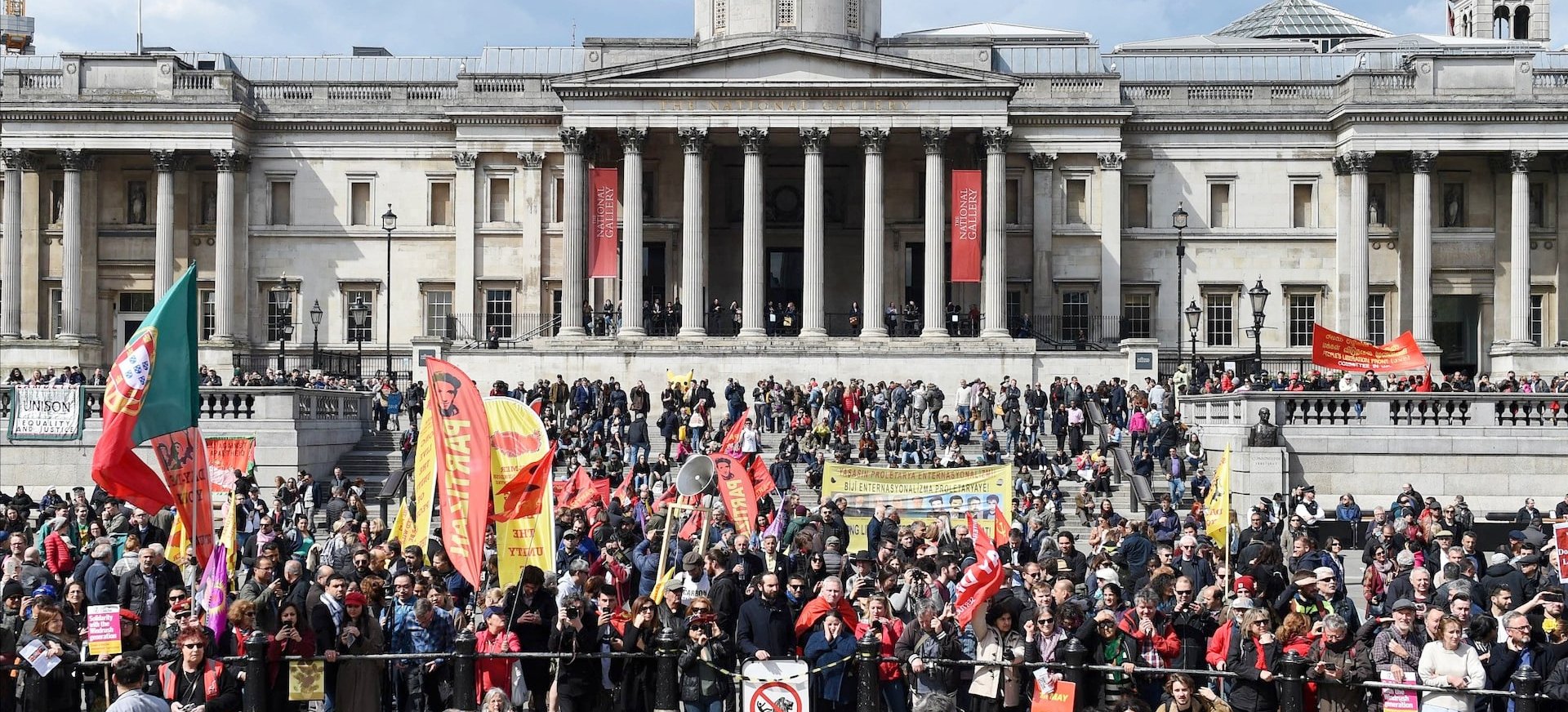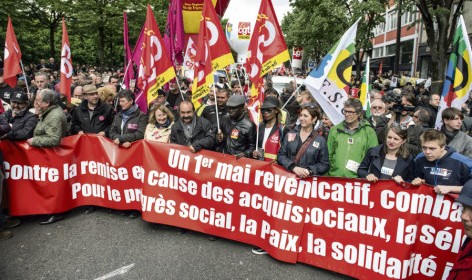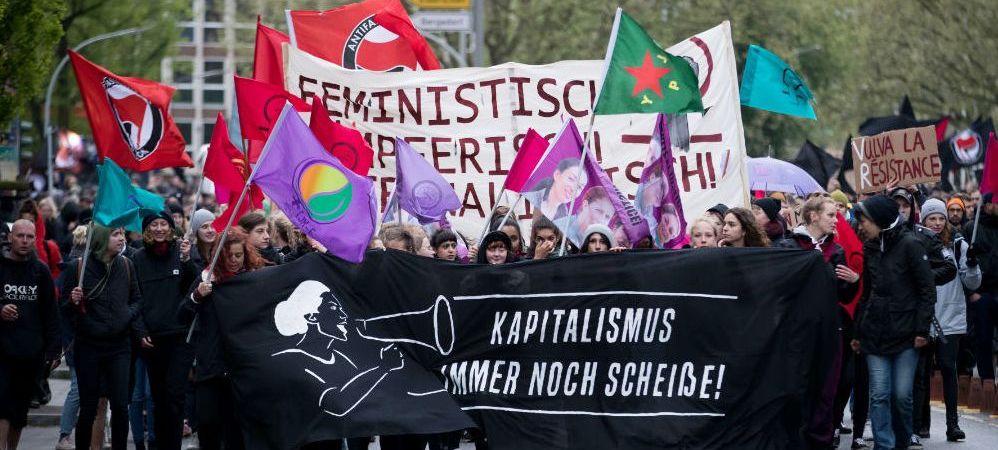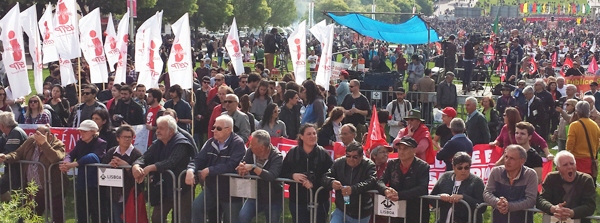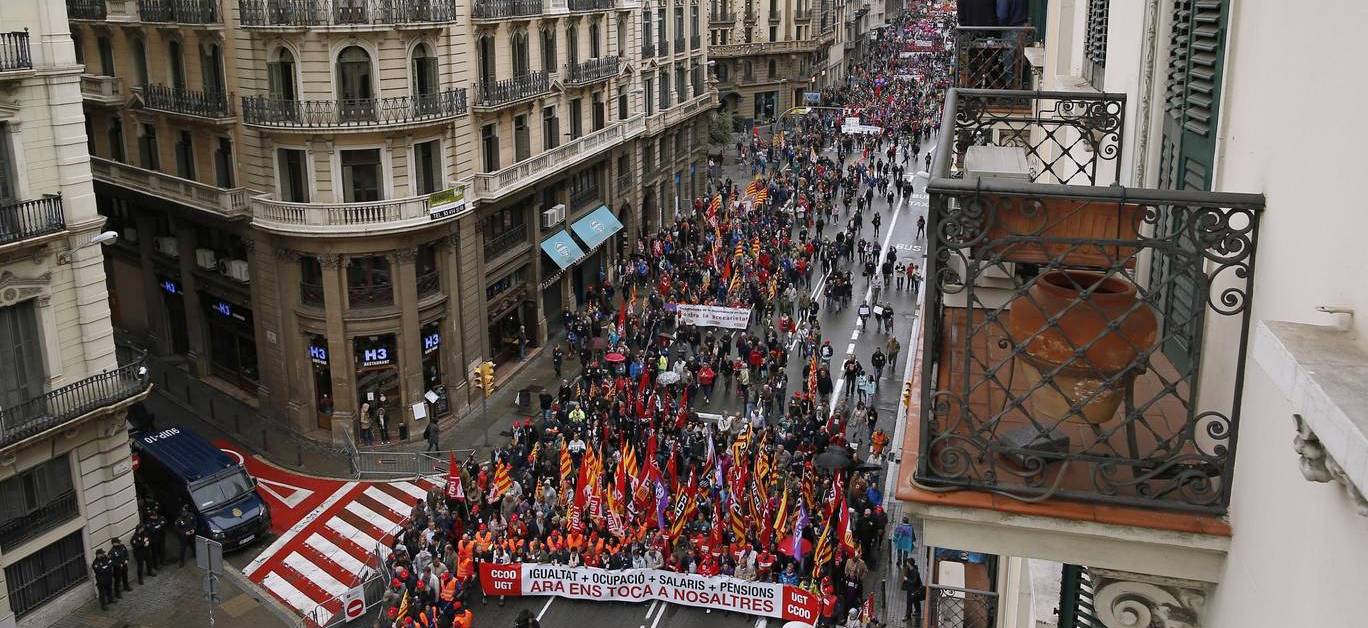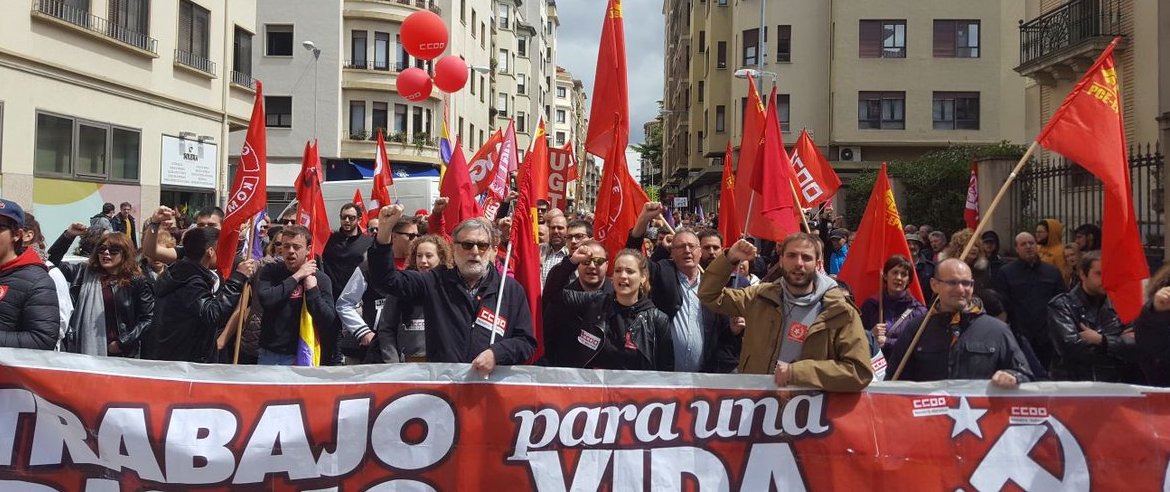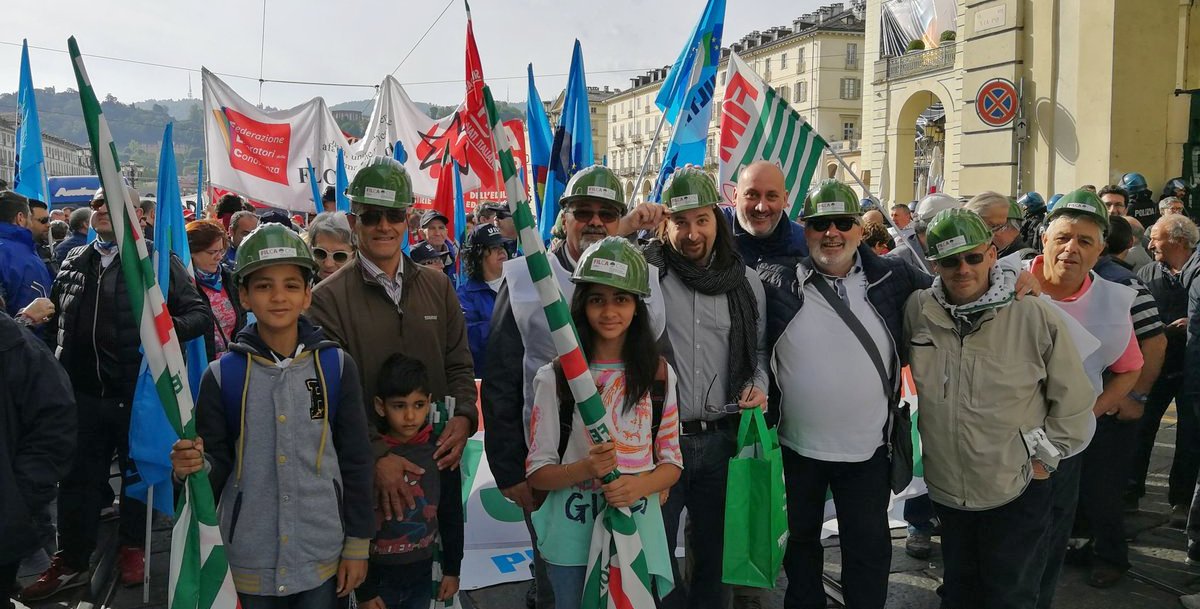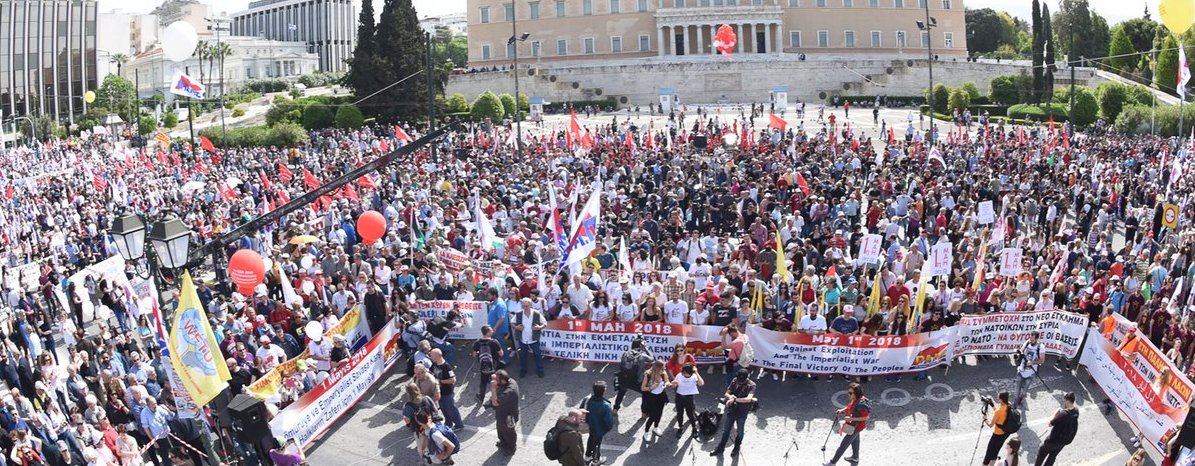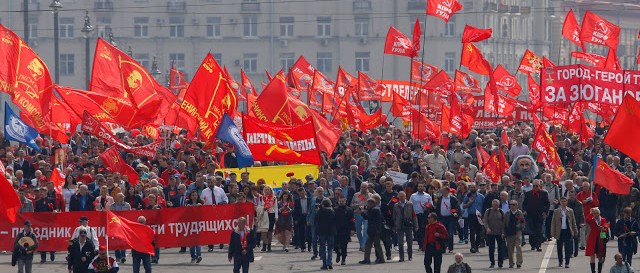
|
May 5, 2018 - No. 17 Supplement Workers the World
Over Raise
All over the world, workers and oppressed peoples raise their fighting demands on May 1, the international day of working class unity and struggle. This year, actions affirmed their determination to overcome the terrible conditions they face, especially in Asia, Africa, Latin America and the Caribbean. For instance, in India 480 million workers live in terrible conditions. They have a hard time keeping body and soul together. Just two days before May Day, the Supreme Court made a very harsh observation against the government which has been collecting billions of rupees to spend on the welfare of construction workers but it has not even spent one per cent of this money. More than 90 per cent of workers are in what is called the informal, unorganized sector where no rights whatsoever are recognized. Workers, farmers, office workers and people from all walks of life are putting their heads together to find a way out of this quagmire. More and more workers are realizing that their security lies in taking action in defence of their rights. Many are beginning to recognize that they must break with the political process and constitution which keep the rich minority in power. Similar situations exist in most of the other countries because the working people are viciously exploited by rich minorities in power and exercise no control over the decisions which affect their lives. In the imperialist heartlands, opposition to the neo-liberal anti-social offensive and the marginalization of the working people in making the decisions which affect their lives was also clearly expressed. Across Canada and worldwide, workers also expressed their opposition to the wars of aggression and occupation of the U.S. imperialists and their allies, including Canada and NATO.
Canada and QuebecHighlighted in Canada and Quebec this year were examples
of
the flagrant abuse of power displayed by the system called a
representative democracy, where governments make sure the rich get
richer at the expense of the working class and people.
The use of the exceptional powers of the Companies' Creditors Arrangement Act (CCAA) blocks the workers from finding solutions to economic problems and enables those who own and control the economy to evade their social responsibilities. The existence of the CCAA is an admission that the ruling imperialist elite do not want to solve problems in the socialized economy because solutions demand a new direction and pro-social aim to serve the broad interests of the economy, public and working people and not the narrow private interests and class privilege of the few who dominate the socialized economy. The global financial/industrial cartels use the CCAA as a weapon to manipulate the failures of the economy so they can re-divide the accumulated assets of big companies to further concentrate social wealth and power in fewer hands and deprive the people of what belongs to them by right. The organized workers' movement says this must stop! The working class demands the immediate and unconditional elimination of the CCAA. An investigation should be launched into the injustices the CCAA has perpetrated during the last twenty years and lead to compensation for victims who have suffered unjust losses, and to punishment of those in the ruling elite who have abused the state authority for private gain. Another major problem workers face in workplaces across
the country is the abandonment of what became known after the Second
World War as "good faith negotiations," as those who own and control
the economy increasingly refuse to negotiate with workers to reach a
certain stability and predictability within a legal collective
agreement. In this period of retrogression and the anti-social
offensive, the imperialists have decided unilaterally to block
negotiations and insist on the imposition of their narrow private
interests without any worker input and say, often using the police
powers of the state to enforce their dictate in opposition to
negotiating any settlement. This creates an impossible situation for
the workers which they are addressing by mobilizing in actions which
inform and empower them. Canadians will not permit passions to be inflamed while police powers are mobilized to criminalize the opposition to the schemes of the financial oligarchy. Workers are coming forward to defend the peoples' right to decision-making authority and to exercise their sovereignty. Their striving is to create a viable economy which is an integral part of a sustainable social and natural environment. The use of the state to protect the impunity of private interests goes hand in hand with the use of measures such as CCAA. For five years, German imperialists have locked out workers at the Max Aicher North America (MANA) steel plant in Hamilton, a former Stelco steel mill. The MANA imperialists want Local 1005 steelworkers to accept a dictate for concessions without resistance. They refuse to negotiate with steelworkers and are continuing production of steel using scabs. The state has provided them with a court injunction to make an effective picket by the locked out steelworkers illegal. The workers are fighting to make governments accountable for their pay-the-rich agenda. It is an agenda in which they open Canada for business by giving all kinds of concessions. They permit the monopolies to do whatever they want in the name of attracting investments and then criminalize the workers by claiming that the defence of their rights harms the national interest. Workers do not accept this state of affairs and are trying to find solutions which uphold their rights and the rights of all, not the privileges of private monopoly interests. The past year has seen crimes committed against workers, including the infamy committed by Sears. At CP Rail, the imperialist ruling elite know full well that the Trudeau government will declare any work stoppage illegal and will legislate workers back to work without CP Rail workers having come to an agreement with their employer on terms of employment acceptable to themselves. The workers were thus forced to vote on a concessionary contract which they had already rejected and had voted in favour of going on strike to press for their demands. Opposition to this approach which has become business as usual for the ruling elite is also a highlight of this May Day. To push anti-social concessionary changes on CP Rail workers and constantly violate their rights is not acceptable to CP Rail workers. One of the most egregious attacks on the working class is taking place in Quebec where the National Assembly is passing laws to criminalize construction workers. Construction workers in Quebec face the police powers of the Liberal government's proposed Bill 152, which tramples on their right to organize collectively to defend themselves on job sites. Workers across Canada join Quebec construction workers with one voice opposing these attacks. Across the country the fight is being stepped up for safety on construction sites and in all spheres of the economy. Workers also used the Day of Mourning, April 28, to express their demands. They participated in ceremonies, processions and meetings to renew their commitment to affirm their right to healthy and safe working conditions. They mourned those who have been killed on the job or died due to occupational diseases and discussed how to protect injured workers and improve health and safety in all sectors. Official data beginning to be published, in whole or in part, for 2017 point to a rise in the number of work-related fatalities due to accidents or occupational diseases. Workers eloquently highlighted that increasingly, many accidental deaths, injuries and occupational diseases are not being reported due to a climate of retaliation imposed by the monopolies, notably in the large industrial sectors. The prevalent demand is that governments must enforce safety standards and that the monopolies responsible, through negligence, for the loss of workers' lives must be held accountable, including through the justice system. The demand that the right to adequate compensation for all injured workers be recognized is of increasing significance because their conditions are deteriorating as a result of the privatization of Workers' Compensation systems and immoral priorities governments set. This year, for the first time in Quebec, over 200 non-unionized truckers gathered in the municipality of Yamachiche to commemorate their co-workers who have passed away, as well as to demand that their occupation be given proper recognition, including appropriate health and safety standards, and that road accidents involving truckers be acknowledged as work-related accidents. On May Day these demands were also taken up. Workers and their collectives declared their determination to step up their organized collective struggle in defence of the health and safety of all workers. The need to have the power to hold governments to account was uppermost on the workers' minds. Today governments permit the monopolies to get off scot-free while they increase their use of unorganized unprotected labour and increase the insecurity at organized work sites as well. The workers are very mindful that the need to be able to hold governments to account is an urgent problem which they must take up for solution by fighting for the renewal of the political process which brings to power governments that do not represent them.
Photo Review of May Day Actions Across Canada and in QuebecBritish ColombiaMore than 140 workers, retirees, youth and
community members held their ninth annual May Day celebration and
banquet in Prince George. Local union leaders informed the community
about current
workers' struggles in defence of their rights, along with discussions
on workers' experiences. The event was dedicated to
the 100th anniversary of the assassination of Ginger Goodwin, a
well-known union organizer assassinated by the Canadian state for
his vigorous stands in defence of workers' rights and against the
imperialist war. In Vancouver, a demonstration took to the
streets in the downtown area upholding workers' rights. Vancouver AlbertaIn Calgary and Edmonton workers held rallies on the theme "Organize, Unite and Fight" and raised the need for an anti-war government. Edmonton OntarioGreater Toronto Area A highlight of the May Day actions in Toronto was a demonstration of more than 100 workers at Pearson International Airport. The workers reaffirmed the workers' opposition to any privatization of airports, presented a specific demand for a reliable 24/7 public transportation service to and from the airport and defended the rights of all workers which are under attack at this time. Workers are opposed to cost-saving measures which result in the deterioration of services and increased user fees, while the deterioration of working conditions also jeopardizes public safety.
Hamilton In Hamilton, United Steelworkers Local 1005 held a pre-dawn picket at the gates of Max Aicher North America (MANA), where union members have been locked out for five years and the plant has been operating for three years with scabs. No public authority has stopped the company for its abuse of power or held Max Aicher to account. In the afternoon, workers gathered outside a federal government building to denounce the situation at MANA and demand changes to insolvency legislation, an instrument for the legalized theft of what belongs to workers by right.
Windsor On April 29 in Windsor, the third annual May Day Roundtable was held, hosted by the Ontario Secondary School Teachers' Federation District 9, and Greater Essex Elementary Teachers' Federation of Ontario. The theme for the roundtable was, "Speaking for Ourselves" and participants discussed working conditions and workers' struggles within the context of developing their unity in action in the battles that lie ahead. A general election is to be held in Ontario on June 7, and the theme put forward, "Speaking for Ourselves," is a particularly timely one for workers to speak out on the direction that Ontario must take. Workers also held a march in which they supported all the workers currently engaged in struggles in defence of their rights, declaring, "Our Security Lies in the Fight for the Rights of All." They also expressed their aspirations for peace without imperialist intervention in the affairs of the peoples.
Atlantic Provinces
|
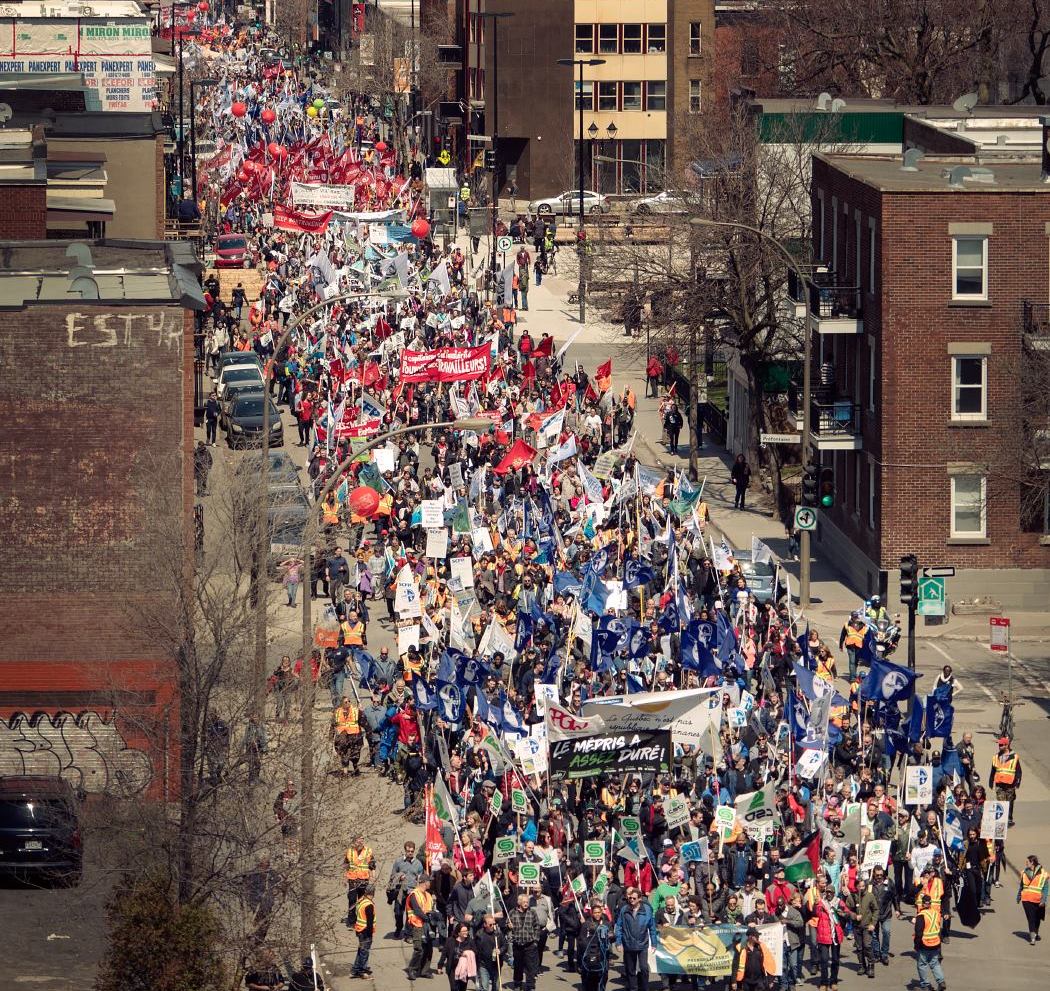
 Opposition to conflicts
being created among workers and criminalizing them in order to defeat
their stands against the impunity of private interests was another
major area of concern this May Day. The Kinder Morgan pipeline project
is a blatant example of the state-organized inflaming of passions and
use of executive powers of the state against the people to block them
from exercising their sovereignty and decision-making power. Kinder
Morgan, the biggest pipeline monopoly in the U.S., announced the halt
of all non-essential work on the $7.4 billion Trans Mountain pipeline
project from the Alberta oil fields to Vancouver. The company said
legal uncertainty surrounding the project posed an unacceptable risk to
investors. The Trudeau and Notley governments have taken up the call
that investor rights must be defended as a matter of national security.
They say the pipeline will be built despite the determined opposition
and lack of consent from broad sections of the people, especially in
the BC lower mainland among those concerned with the natural
environment, many affected Indigenous peoples and BC municipalities,
the Union of BC Indian Chiefs and the BC government. The federal and
Alberta governments claim they are defending the "rule of law" and the
"constitutional arrangements." It is a matter of national interest
because it is crucial for the Canadian economy, they say.
Opposition to conflicts
being created among workers and criminalizing them in order to defeat
their stands against the impunity of private interests was another
major area of concern this May Day. The Kinder Morgan pipeline project
is a blatant example of the state-organized inflaming of passions and
use of executive powers of the state against the people to block them
from exercising their sovereignty and decision-making power. Kinder
Morgan, the biggest pipeline monopoly in the U.S., announced the halt
of all non-essential work on the $7.4 billion Trans Mountain pipeline
project from the Alberta oil fields to Vancouver. The company said
legal uncertainty surrounding the project posed an unacceptable risk to
investors. The Trudeau and Notley governments have taken up the call
that investor rights must be defended as a matter of national security.
They say the pipeline will be built despite the determined opposition
and lack of consent from broad sections of the people, especially in
the BC lower mainland among those concerned with the natural
environment, many affected Indigenous peoples and BC municipalities,
the Union of BC Indian Chiefs and the BC government. The federal and
Alberta governments claim they are defending the "rule of law" and the
"constitutional arrangements." It is a matter of national interest
because it is crucial for the Canadian economy, they say. So too the Rio Tinto/Alcoa
imperialists in control of the
Aluminerie of Bécancour Inc (ABI) in Quebec have dictated
concessionary changes in the collective agreement and locked out
1,030 smelter workers as if to say, "We have many aluminum
facilities worldwide and will use production elsewhere to crush
your resistance and dignity. Give in or we will destroy your
smelter." Meanwhile, they get away with not paying Hydro-Quebec
for their quota of subsidized electricity.
So too the Rio Tinto/Alcoa
imperialists in control of the
Aluminerie of Bécancour Inc (ABI) in Quebec have dictated
concessionary changes in the collective agreement and locked out
1,030 smelter workers as if to say, "We have many aluminum
facilities worldwide and will use production elsewhere to crush
your resistance and dignity. Give in or we will destroy your
smelter." Meanwhile, they get away with not paying Hydro-Quebec
for their quota of subsidized electricity.